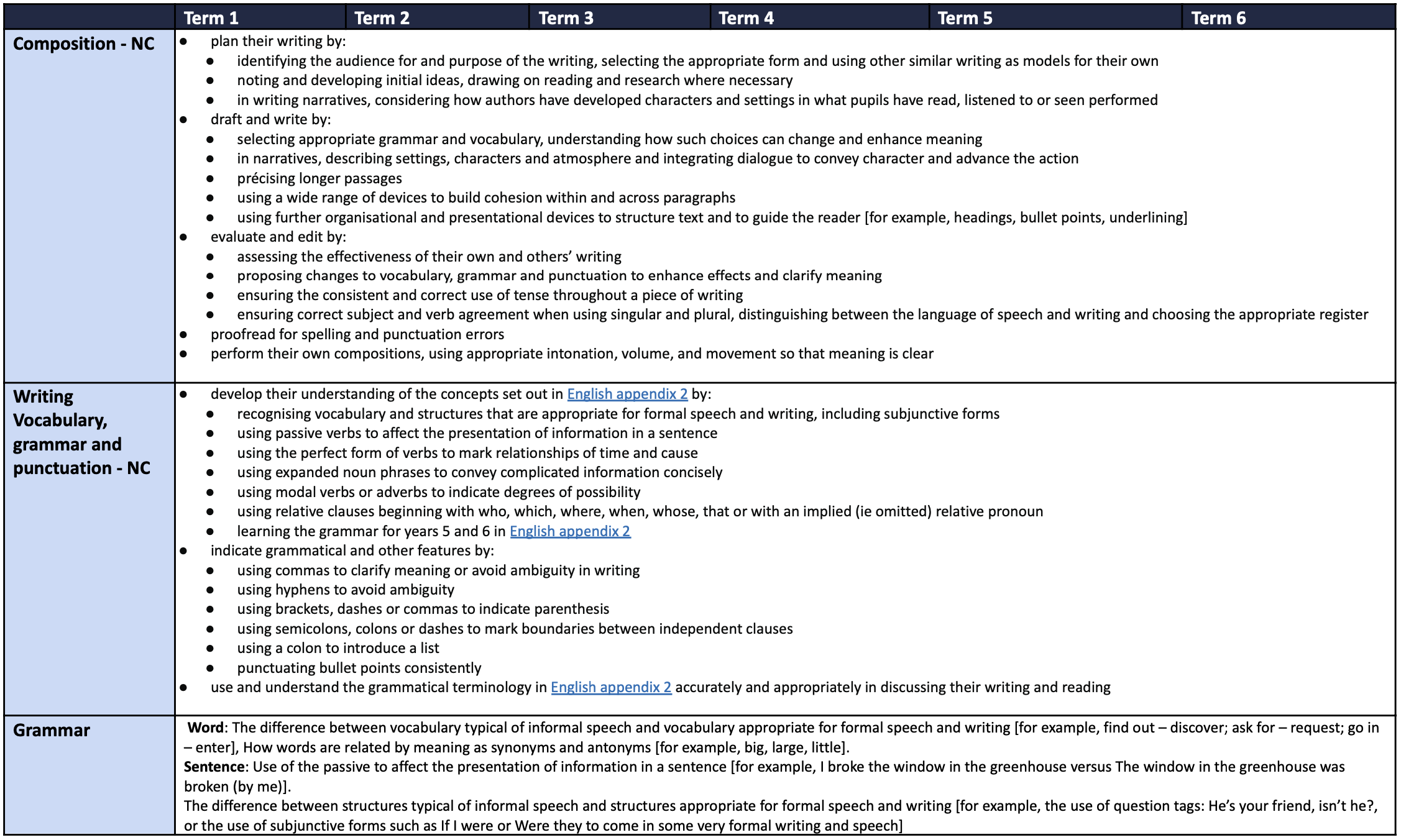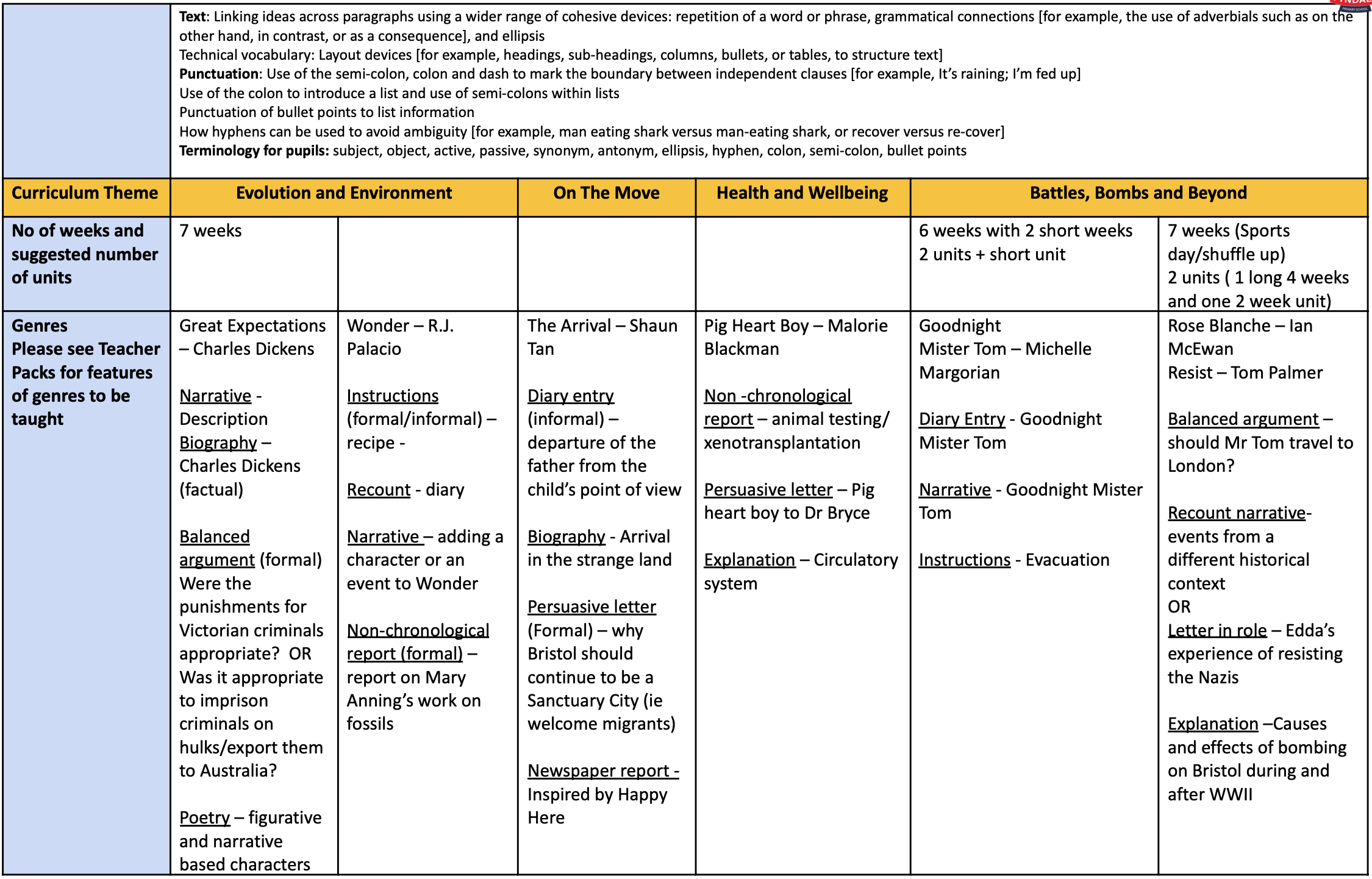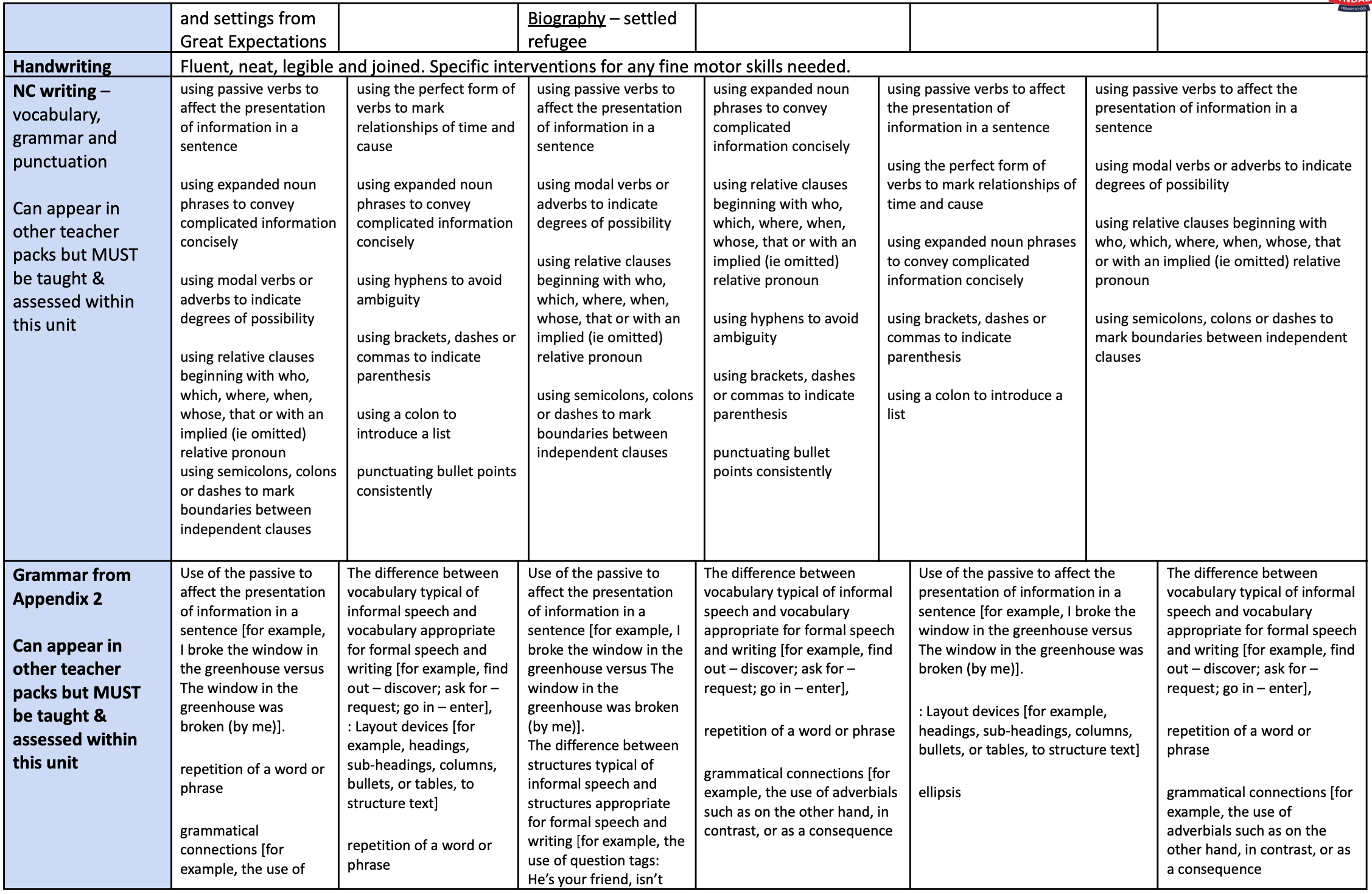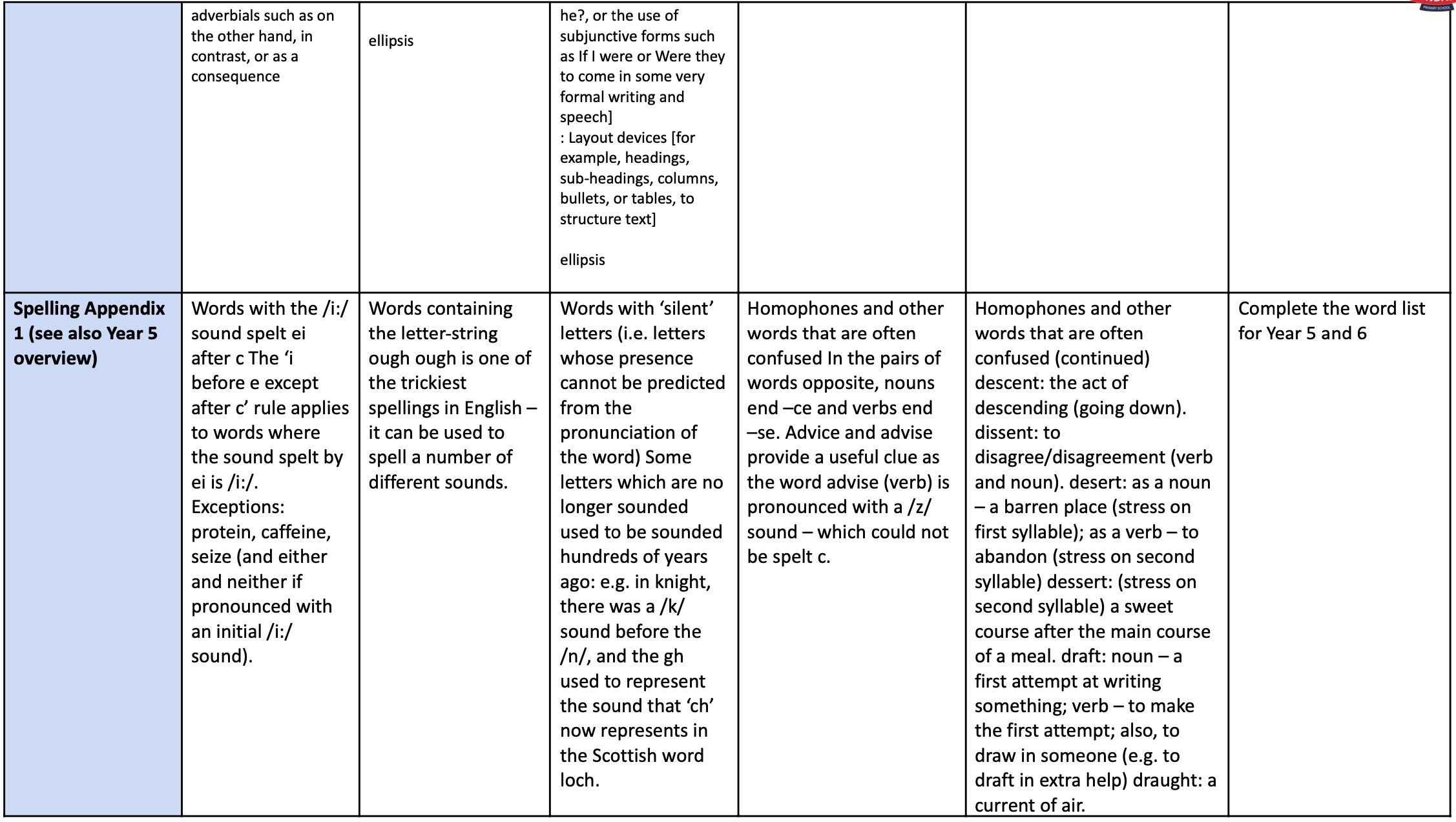Writing, SpAG, & Speaking & Listening
Intent
Vision statement: Over their time at Tyndale, children are taught how to communicate effectively through writing. We want them to have experience of writing for a variety of purposes and audiences. We want our children to become confident, accurate writers who achieve well while they are at Tyndale and wherever they go on to next in their school careers and beyond.
At Tyndale, we believe the will to write and the thrill of writing come from having the skill of writing.
There is a focus from the outset to ensure the basics are learnt effectively. We have a relentless focus on accuracy and a mastery approach. This means that children have knowledge and skills of transcription (how they write), spelling and composition (what they write) by the end of Key Stage One. To develop the effectiveness of their writing, these skills are then developed in Key Stage Two, as children are taught to make choices in their writing to match the purposes they write for.
Transcription
-
Children learn the most common sound-spelling relationships and alternatives for some letters and groups of letters to allow them to sound out a wider range of words
-
Children learn to recognise and use spelling patterns
-
Neat legible handwriting, letters formed correctly
Composition Skills
-
Planning what they want to write
-
Rehearsing orally a sentence before writing it
Attitudes to learning
-
Confident, fluent writers
-
Take pride in writing grammatically accurate sentences
-
Enjoy investigating creative ways to communicate their ideas through deliberate language choices
-
Can apply their skills to all areas of the curriculum
Speaking and Listening
Speaking and listening comprises part of the wider English curriculum. We aim to develop pupils’ spoken language by providing opportunities across the curriculum but explicitly teach skills in reading and writing lessons. We teach our pupils to speak clearly, develop and convey their ideas fluently and confidently and to ask questions in order to clarify their understanding and develop their ideas. We teach vocabulary in all subjects in order to ensure pupils have the language skills they need to explain their thinking.
Writing Whole School Curriculum Map
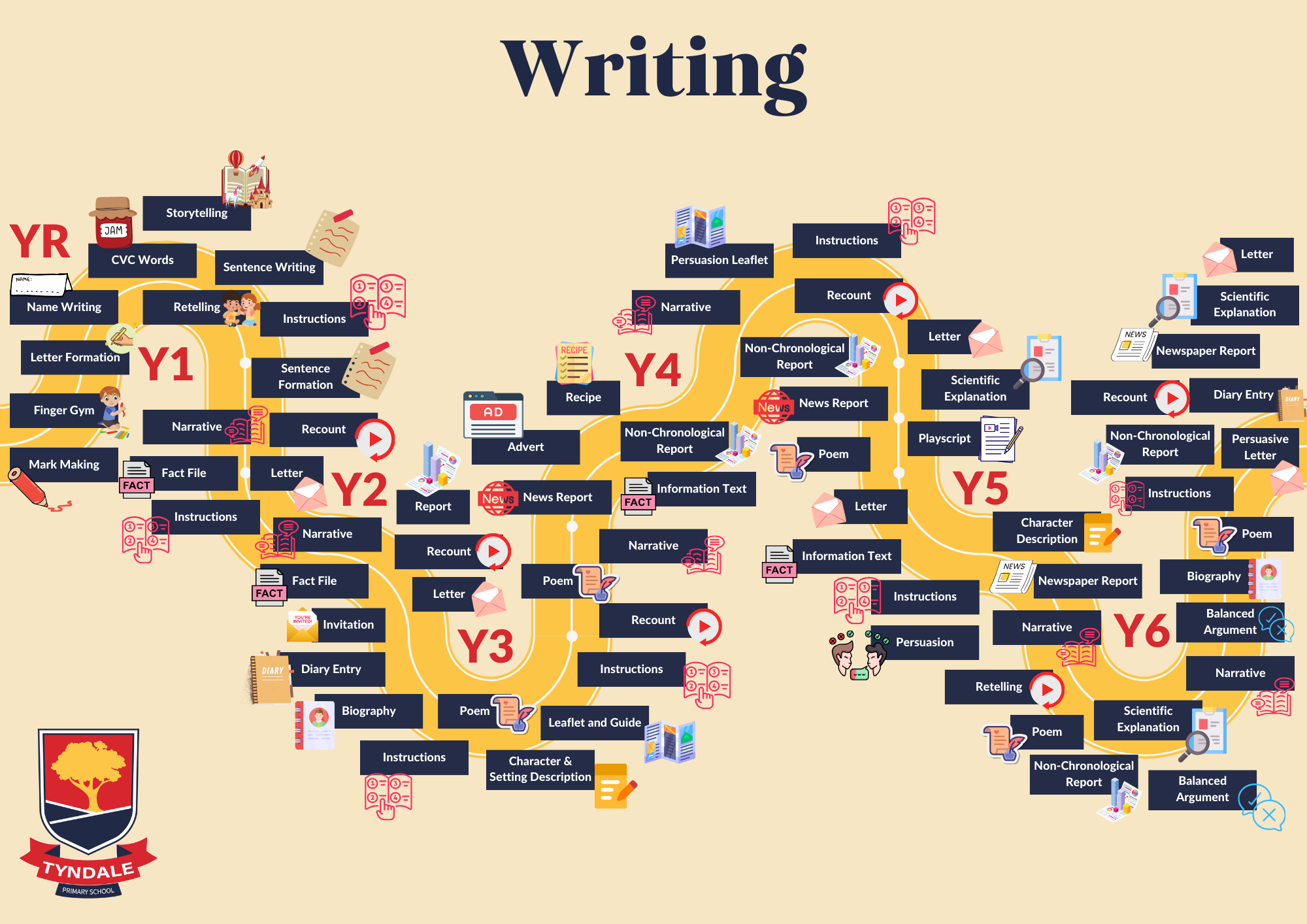
Writing, Spelling, Grammar, and Handwriting
Intent
At Tyndale, we strive to help our pupils develop into articulate, effective and imaginative communicators, who are well-equipped with the basic skills they need in life; English learning is key in this. We aim to ensure all of our children develop a genuine love of language and the written word, through a text-based approach. We ensure that children develop an understanding of how widely writing is used in everyday life and, therefore, how important and useful the skills are that they are learning. Our intentions in writing are for children to:
-
Write for a purpose
-
See themselves as real writers
-
Take ownership of their writing
-
See writing as an interesting and enjoyable process
-
Acquire the ability to organise and plan their own written work
At Tyndale, we believe the will to write and the thrill of writing come from having the skill of writing.
There is a focus from the outset to ensure the basics are learnt effectively. We have a relentless focus on accuracy and a mastery approach. This means that children have knowledge and skills of transcription and spelling (how they write) alongside composition (what they write) by the end of Key Stage One. To develop the effectiveness of their writing, these skills are then developed in Key Stage Two, as children are taught to make choices in their writing to match the purposes they write for across an increasing range of genres.
Approach
At Tyndale, we teach the National Curriculum as a minimum entitlement.
EYFS – Daily phonics build up children’s phonetic knowledge through the Little Wandle programme. Literacy sessions grow children’s skills from early mark making, through letter formation, CVC word writing and into labelling and sentence writing.
Year 1 – Little Wandle phonics continues. In writing lessons, pupils are taught both narrative and non-fiction in alternating units to ensure the skills of word building and sentence building are secure.
Years 2 – 6 - We teach through a 10-phase teaching cycle from Year 2 up through KS2. The cycle takes a cognitive approach to the writing process where children are taught:
-
to recognise key features of particular genres of writing which meet specific purposes, including the structure of a text
-
to investigate the language and grammatical choices made by an expert author
-
to plan writing using what they have learnt about the writing process so far and to include ideas they want to communicate
-
to draft their ideas, using the features learnt, exploring grammatical choices with a reader in mind
-
to revise their writing, both as they go and after completing a draft to ensure it achieves the purpose intended
-
to edit their work for accuracy
Sometimes work will be published. This will be to showcase a significant achievement, for a particular audience to read it or because the published format differs from the draft format.
Occasionally, a unit will be longer, in upper KS2 for example, where a text or a particular genre warrants a deeper study.
Writing starts from a quality text so that our pupils are learning from expert writers, which provide rich examples of vocabulary, cultural capital, language structures and text organisation. Texts are chosen to link the writing curriculum with the overall curriculum theme for the term. This allows children to deepen their subject knowledge whilst also developing their knowledge of written communication and their skill in choosing grammar and vocabulary for a purpose.
We teach four purposes for writing and children learn different genres and text types within each purpose, experiencing the full range in their time at Tyndale. Genres are revisited across the year with a different grammar choice or sentence structure emphasised in each iteration. The knowledge builds sequentially with frequent and regular opportunities to revisit, recall from memory and extend schema about how to write well. This way, pupils can make links with previous learning and apply their knowledge in light of new experiences and through a range of contexts. Cognitive load is managed by ensuring new learning is introduced in small steps, exemplified in worked examples and modelling, practised frequently and recalled over time.
Writing Overview
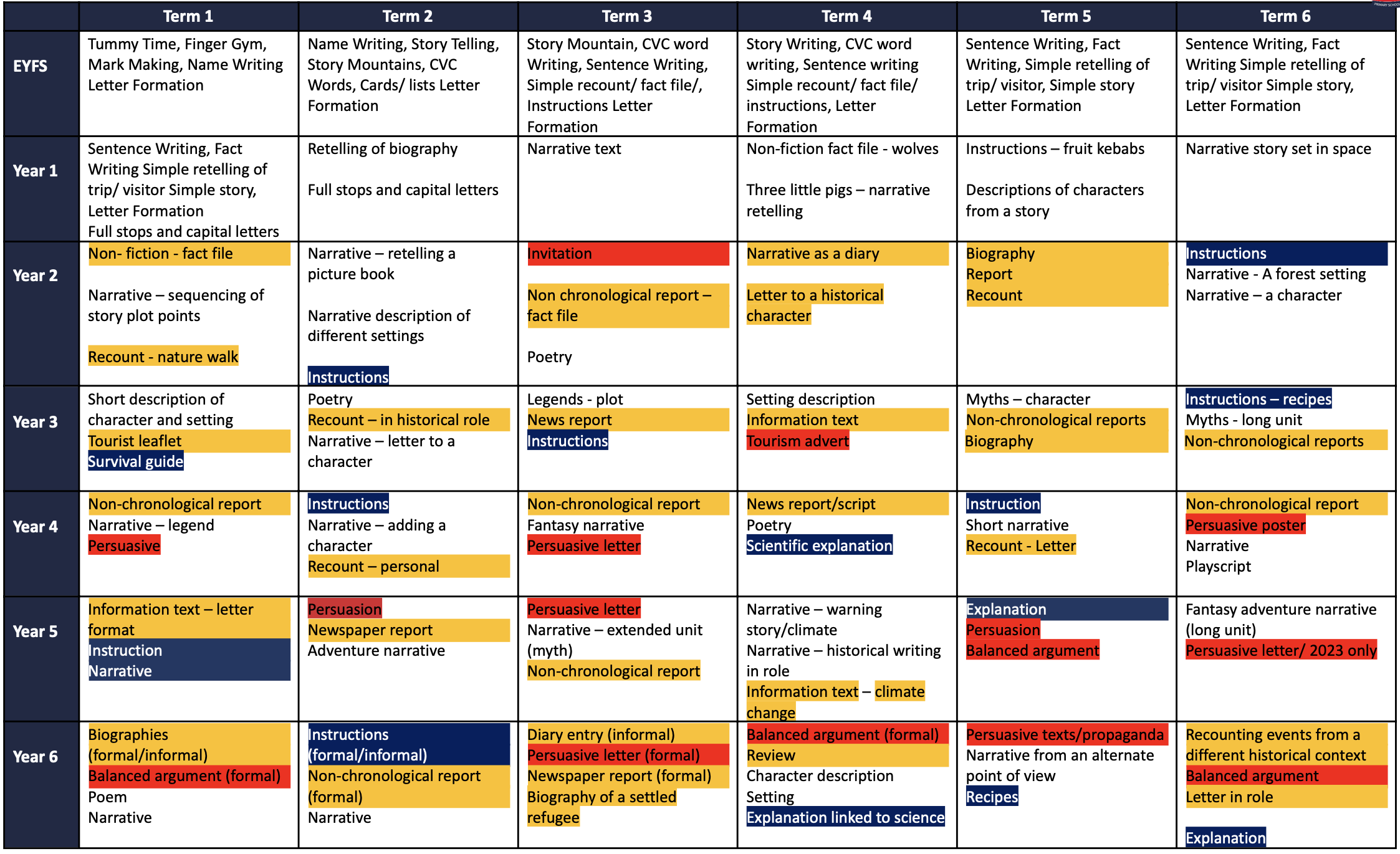
Purposes of Writing and Genres

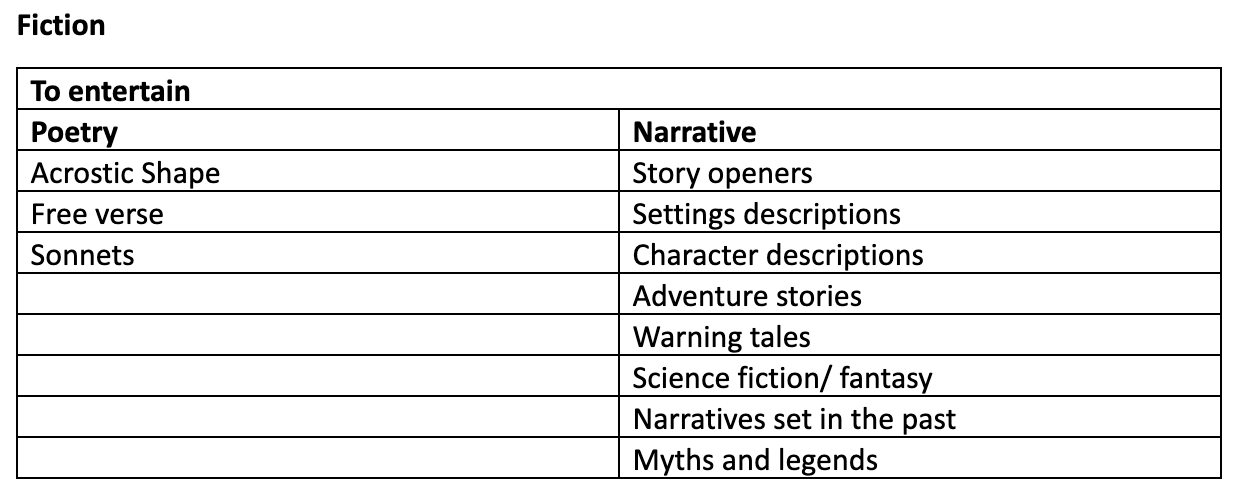
Skills Progression
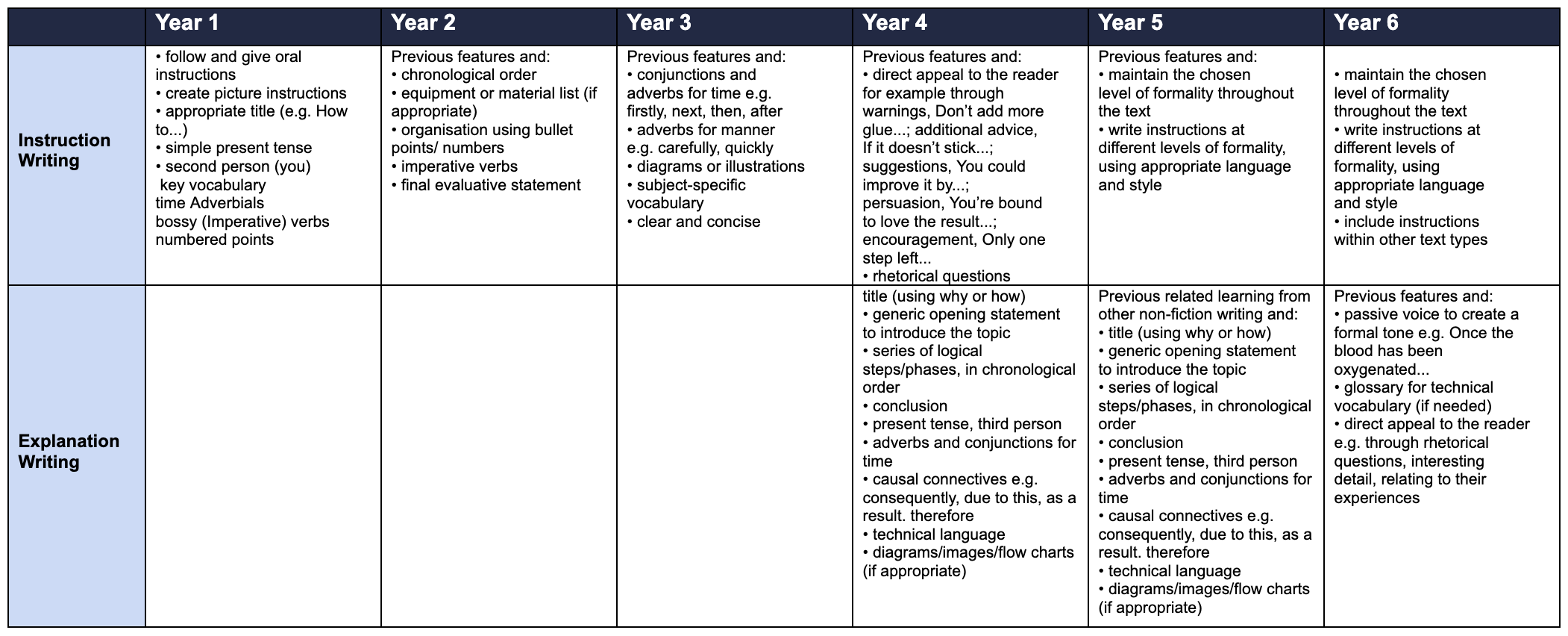
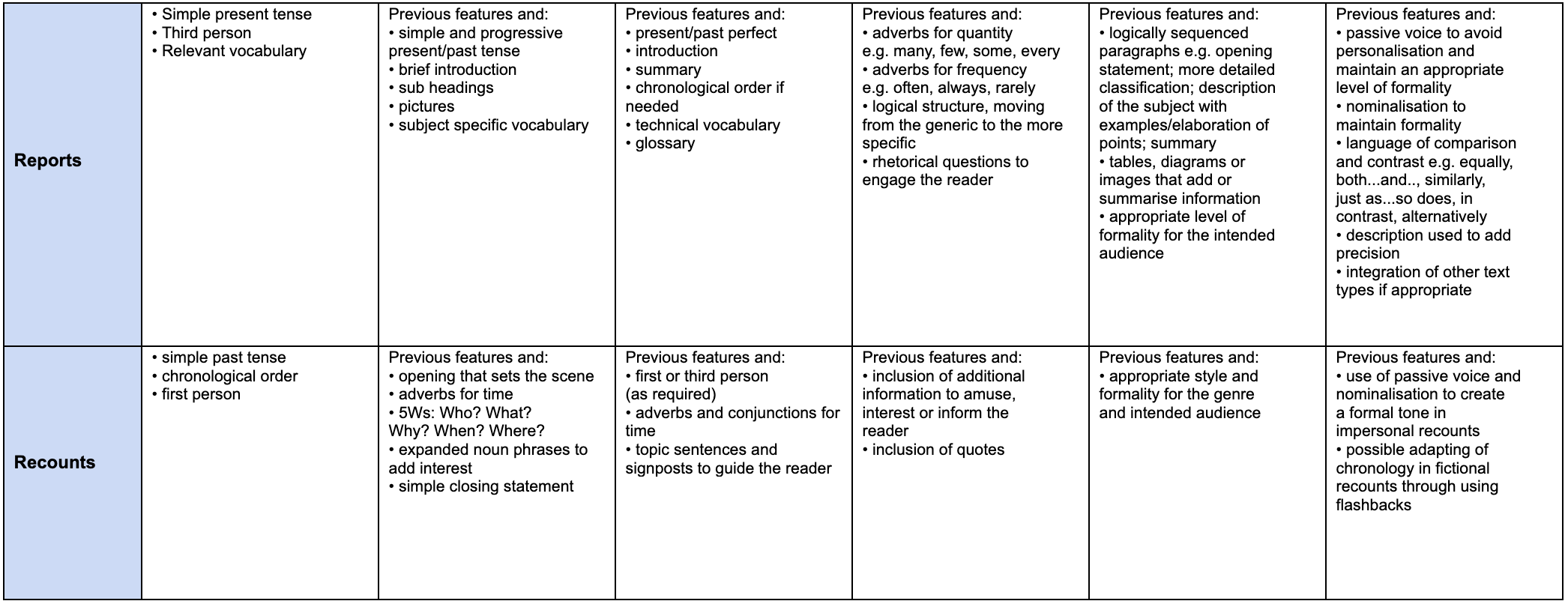

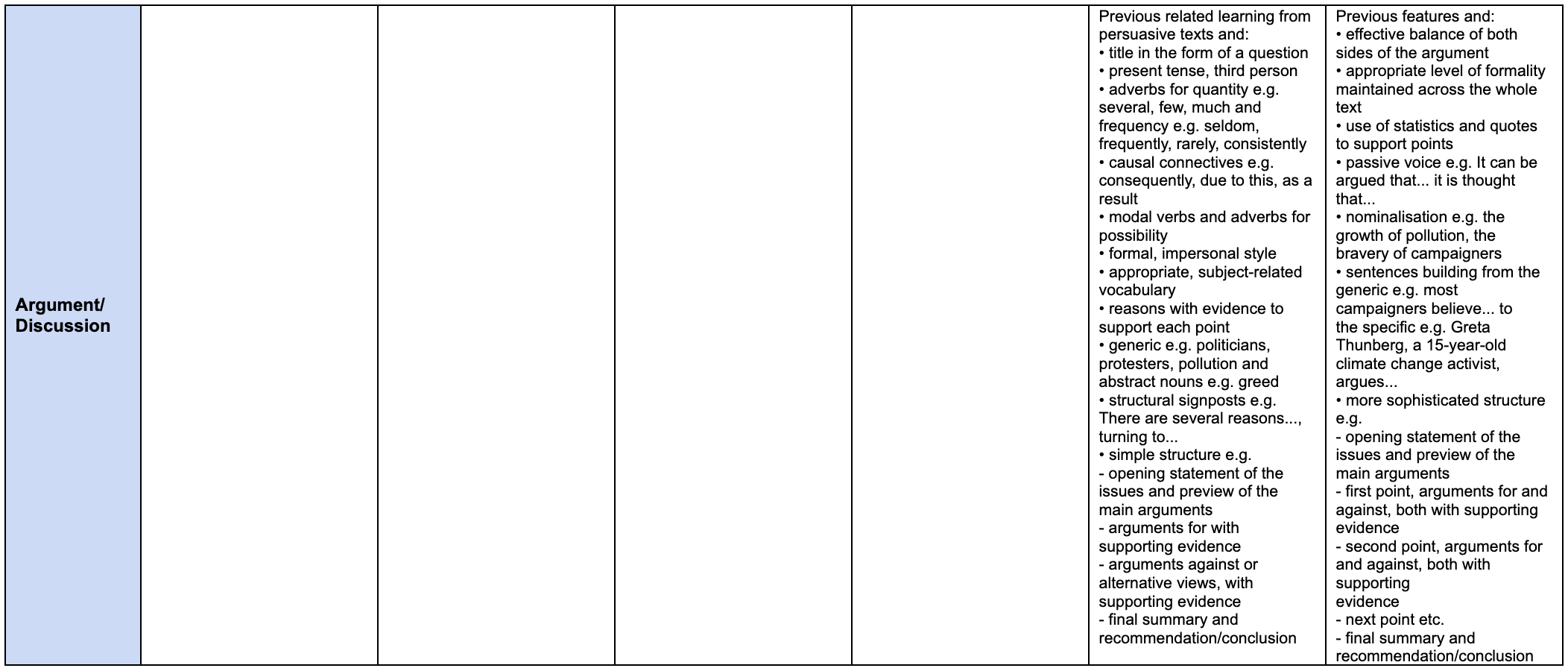
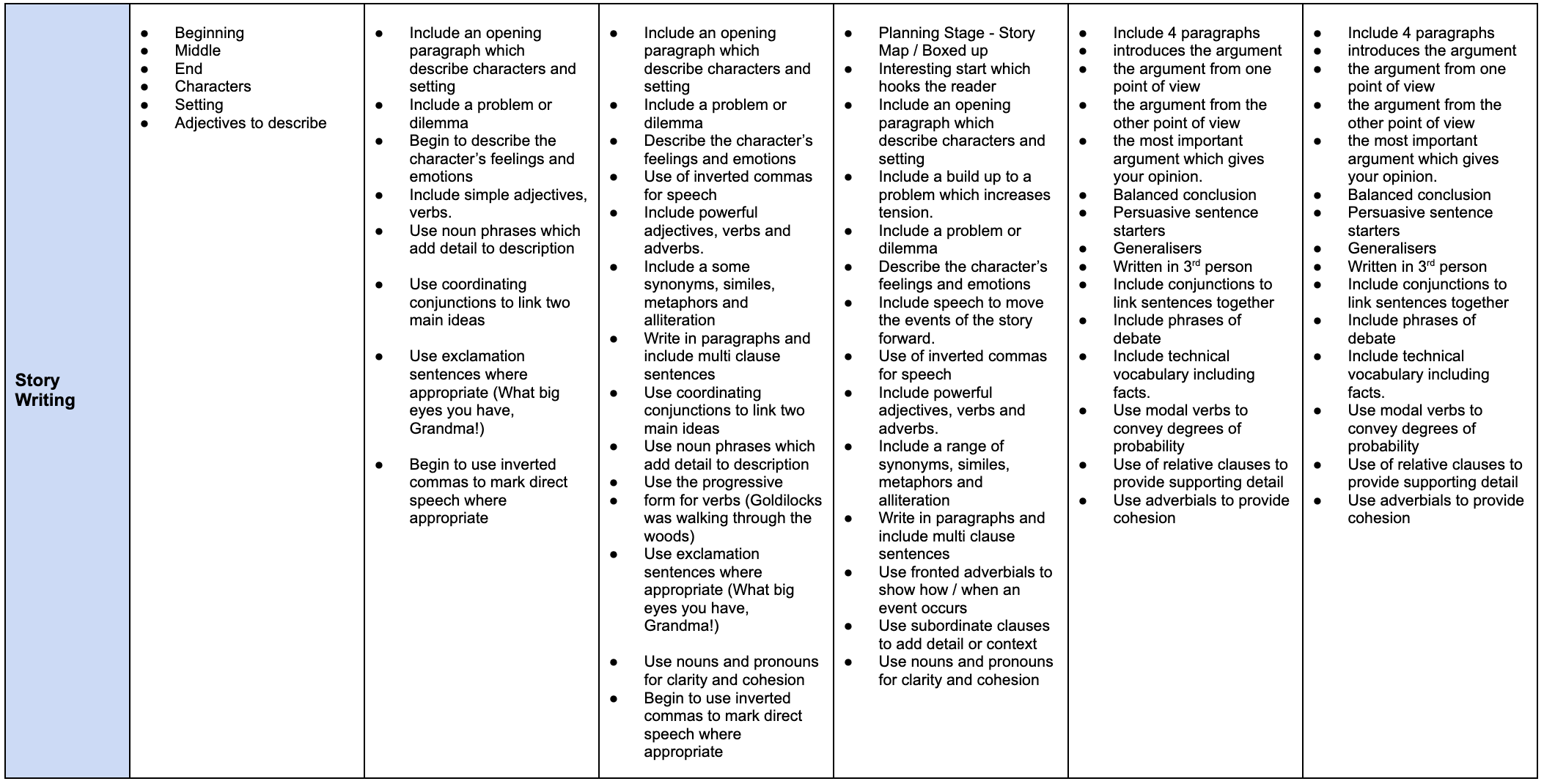
Quality Texts for Writing
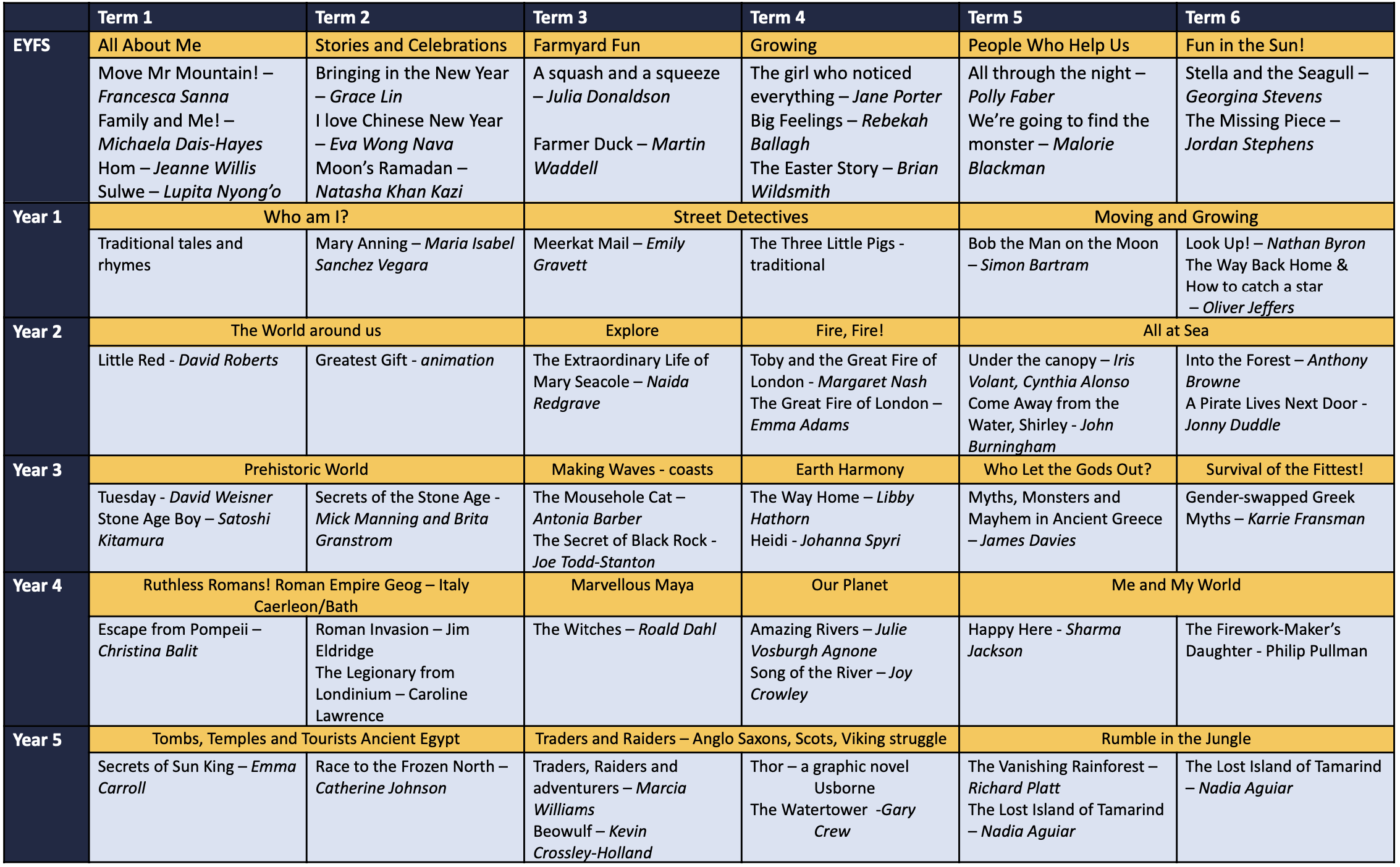

Progression of the Teaching of Spelling
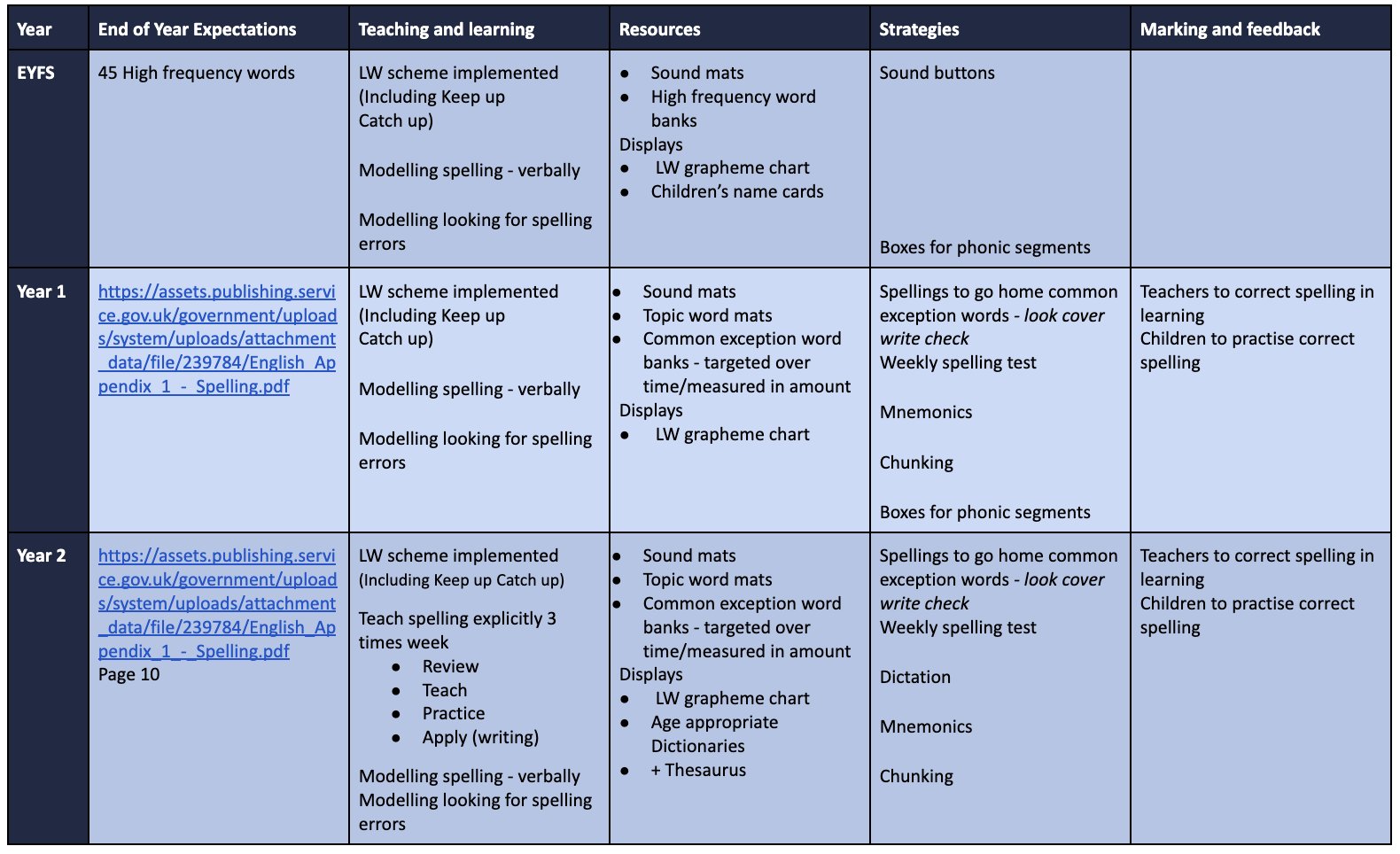
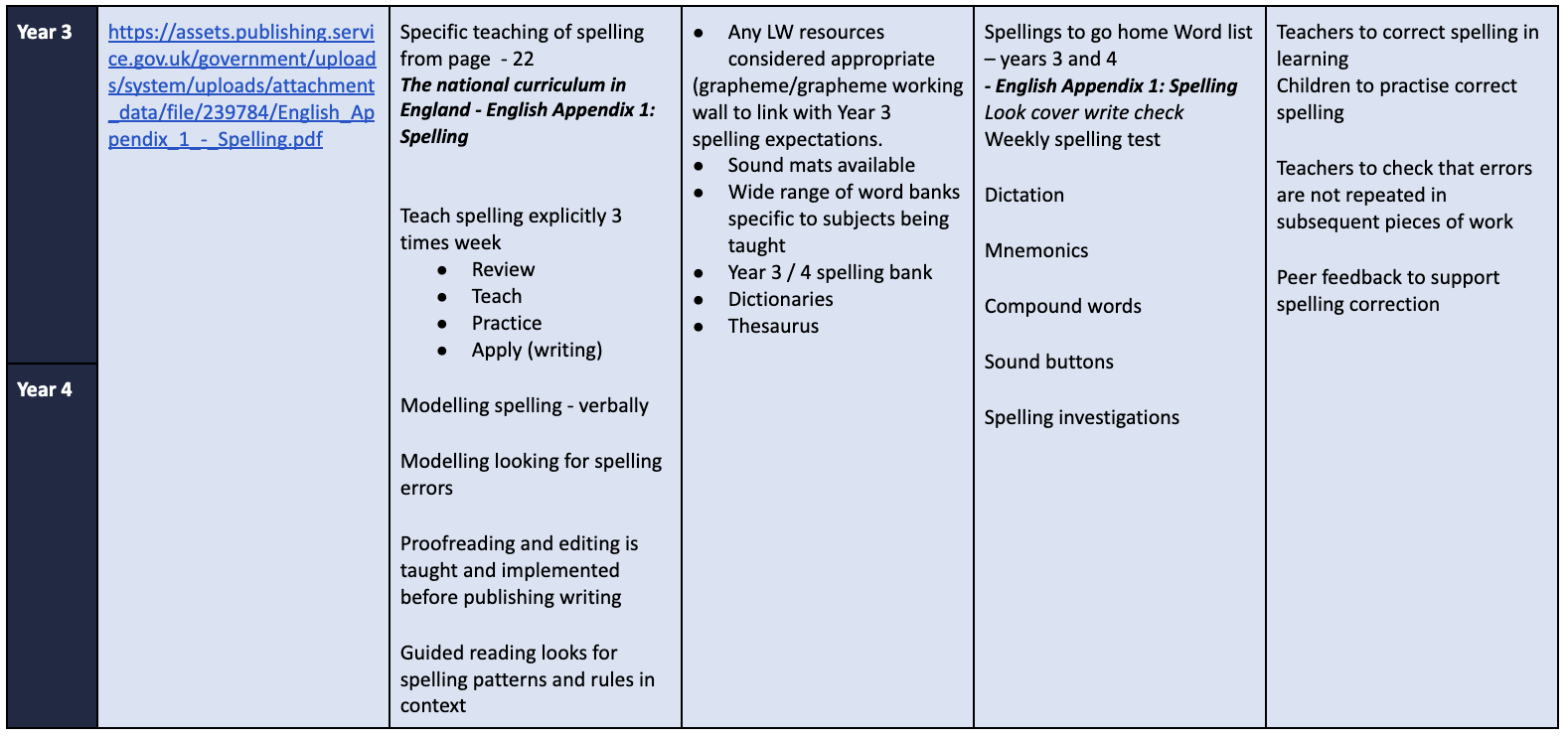
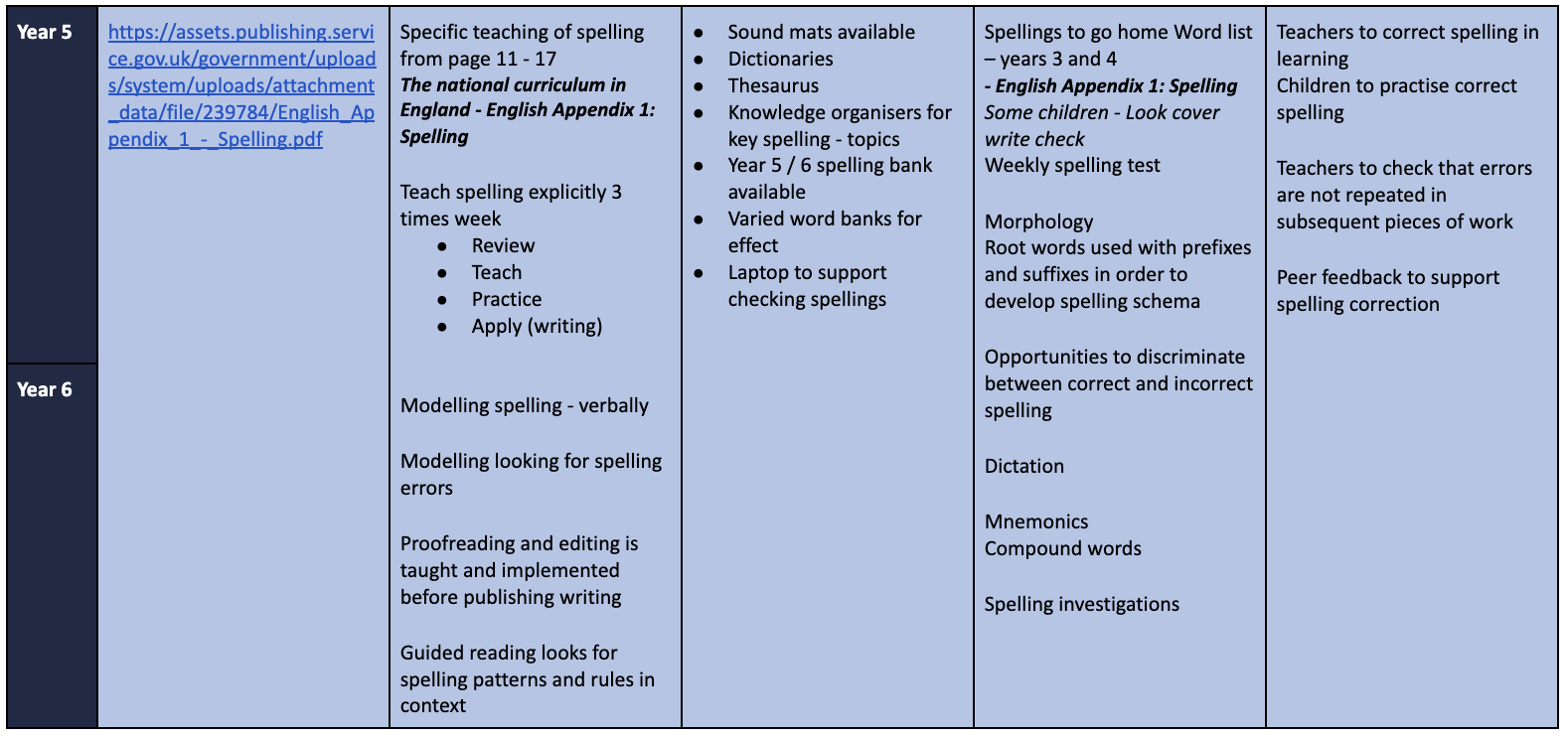
Speaking and Listening
Intent
Speaking and listening comprises part of the wider English curriculum. We aim to develop pupils’ spoken language by providing opportunities across the curriculum but explicitly teach skills in reading and writing lessons. We teach our pupils to speak clearly, develop and convey their ideas fluently and confidently and to ask questions in order to clarify their understanding and develop their ideas. We teach vocabulary in all subjects in order to ensure pupils have the language skills they need to explain their thinking.
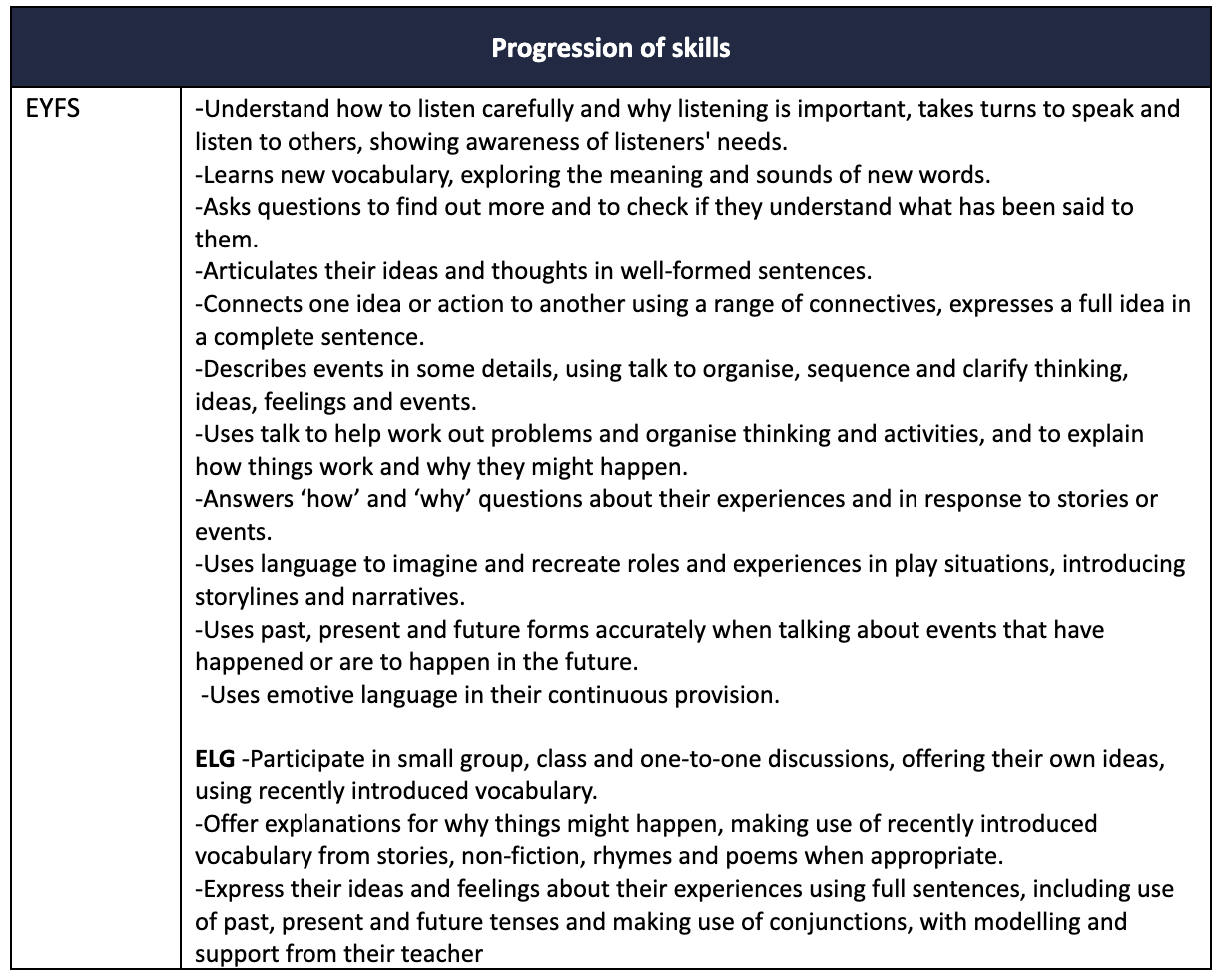
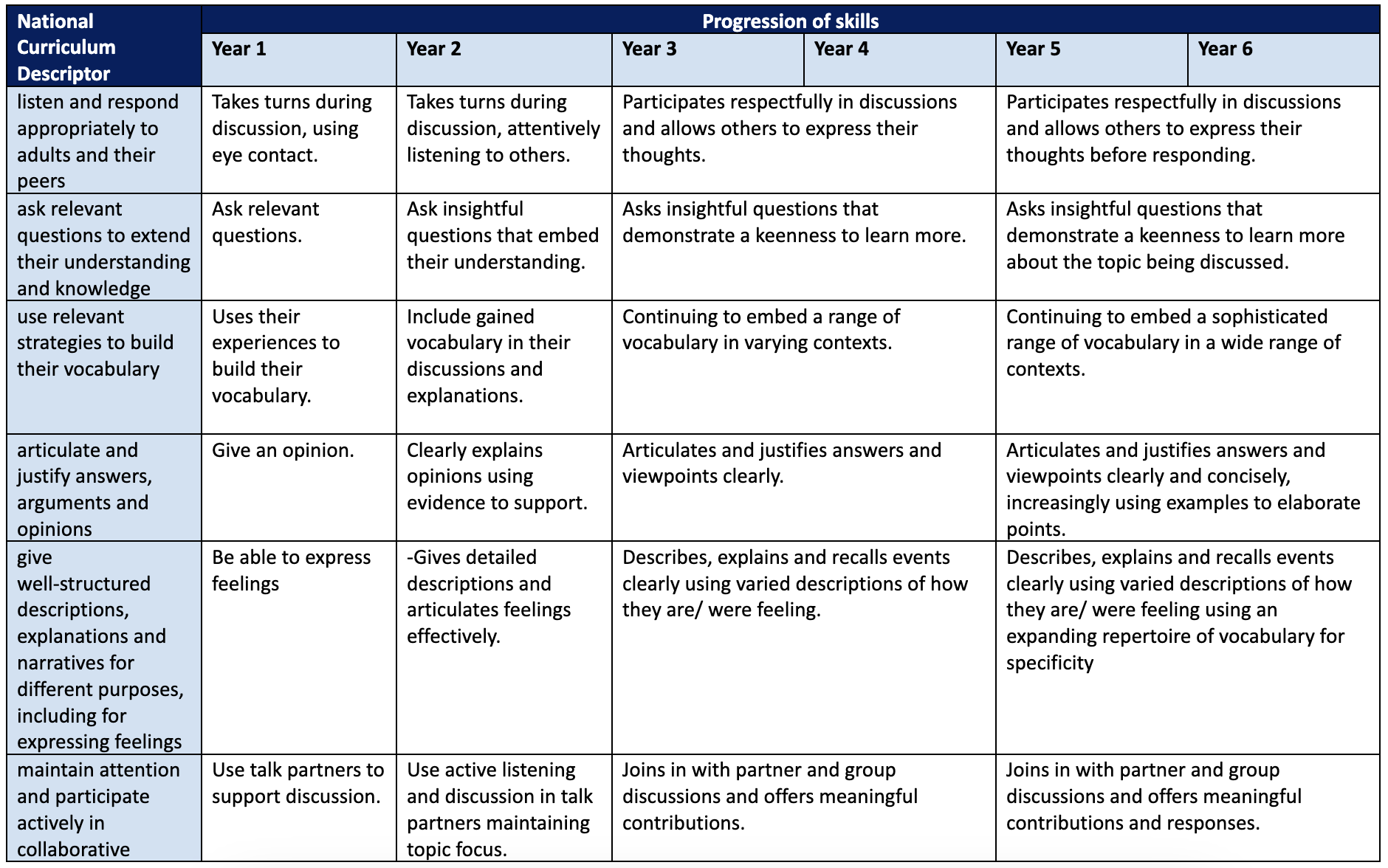
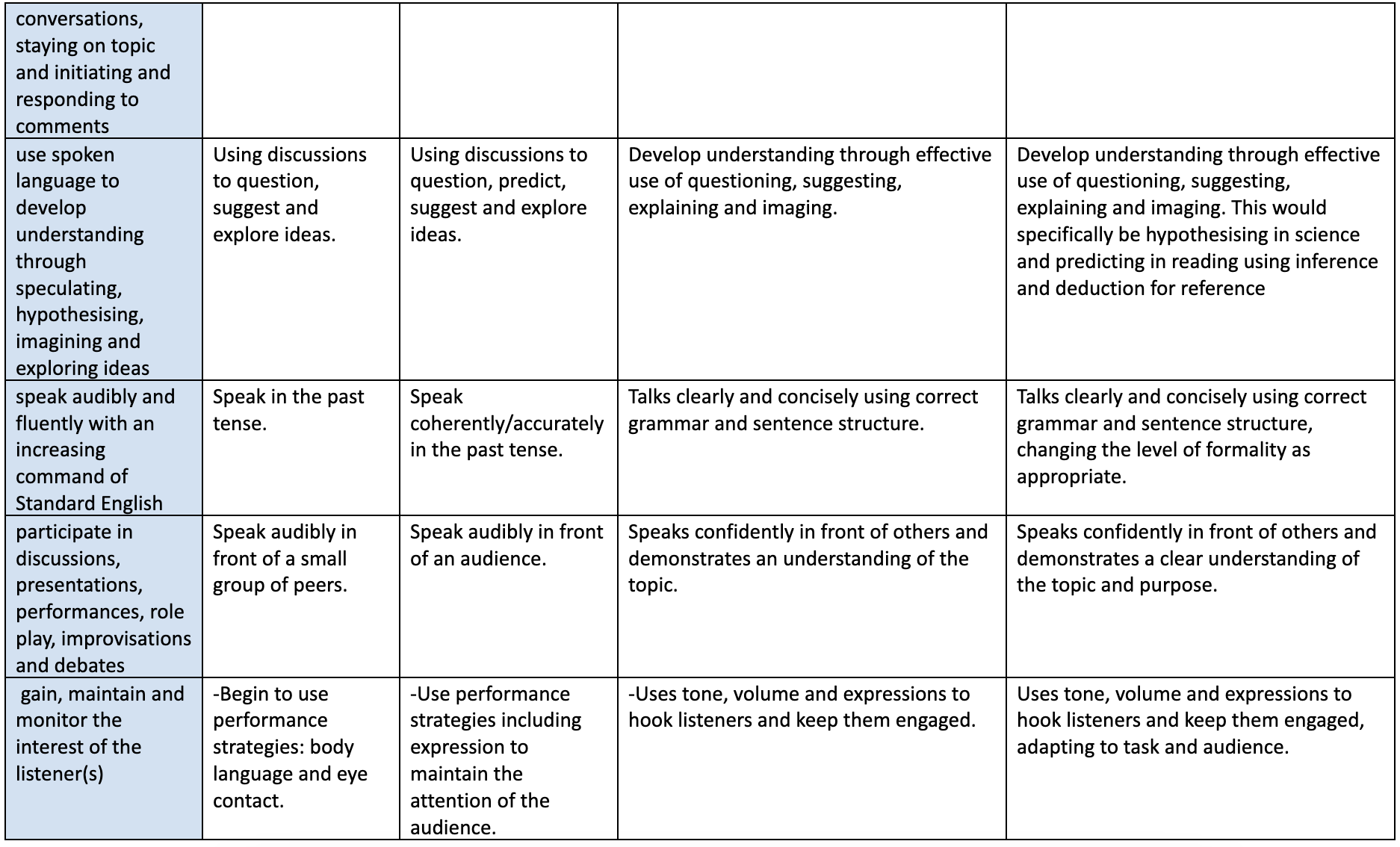

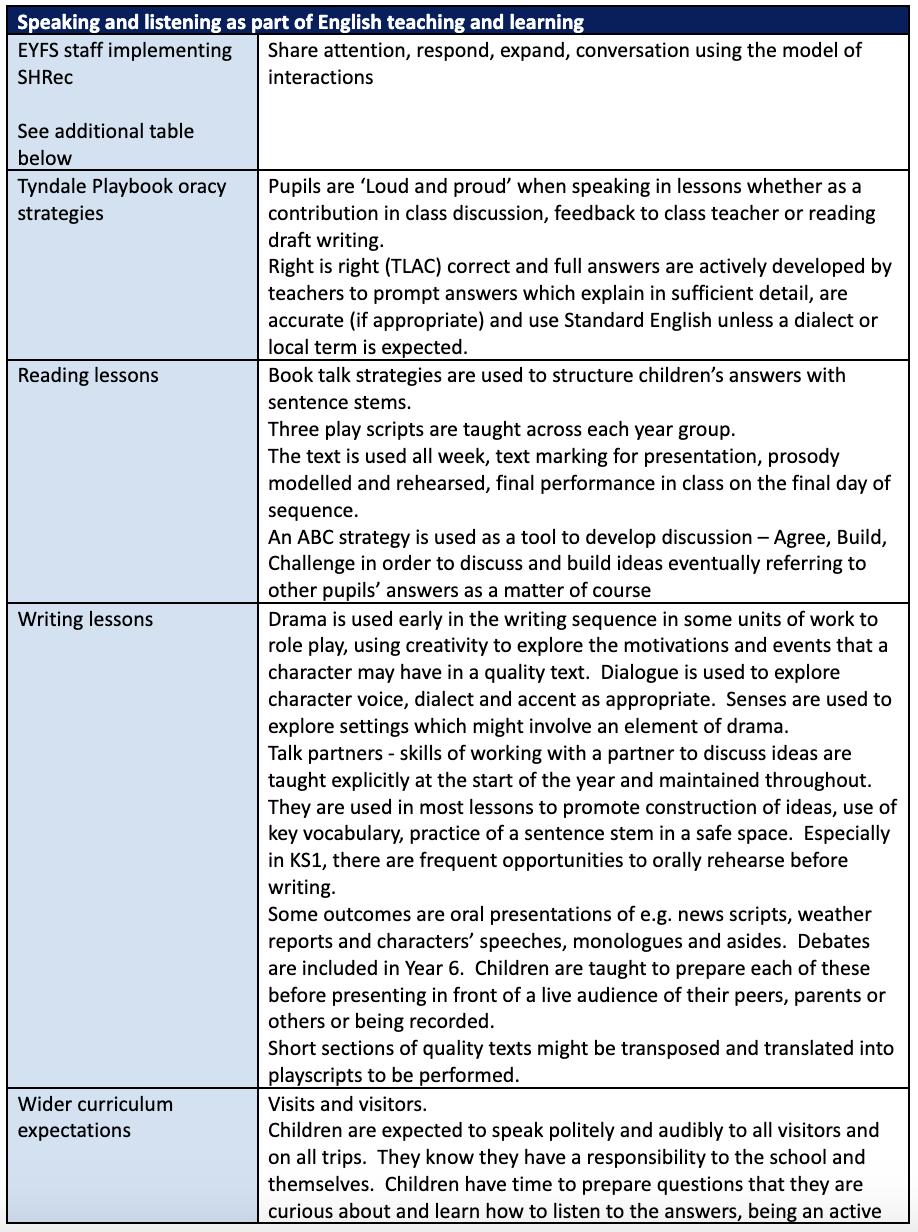
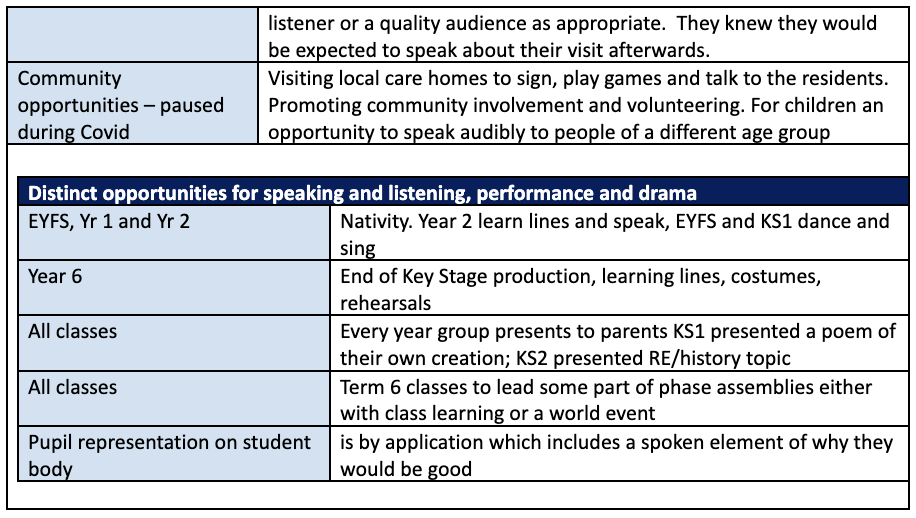
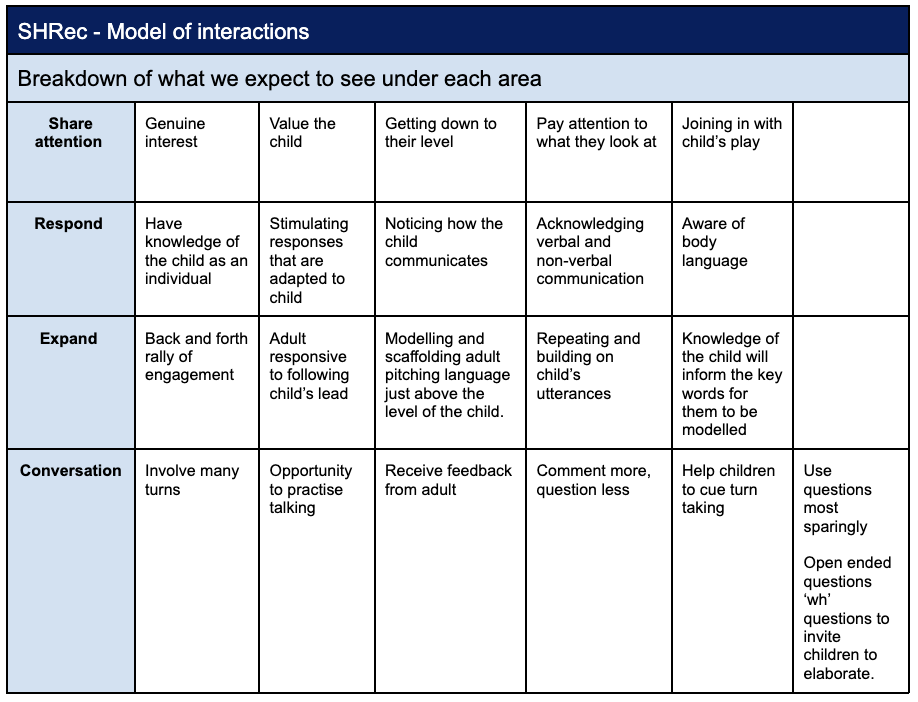
Year One Overview
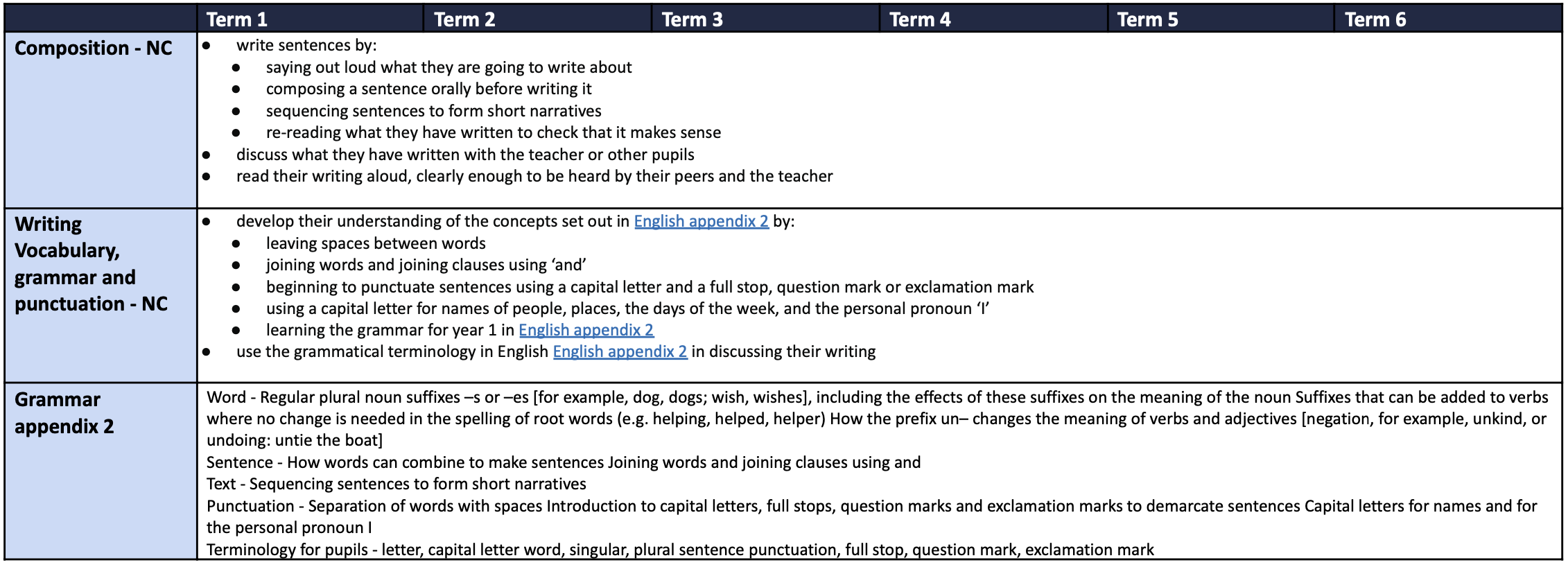
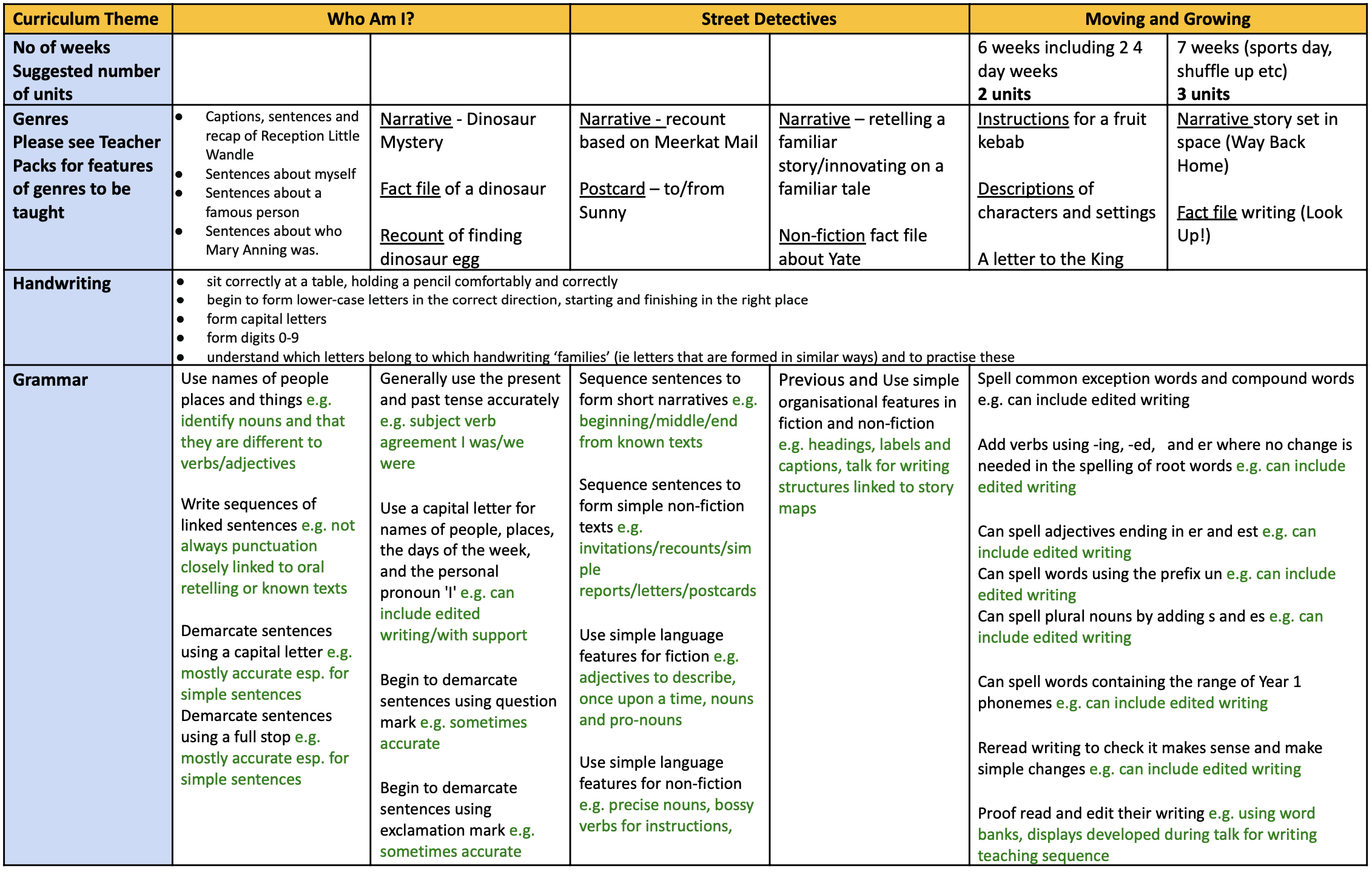
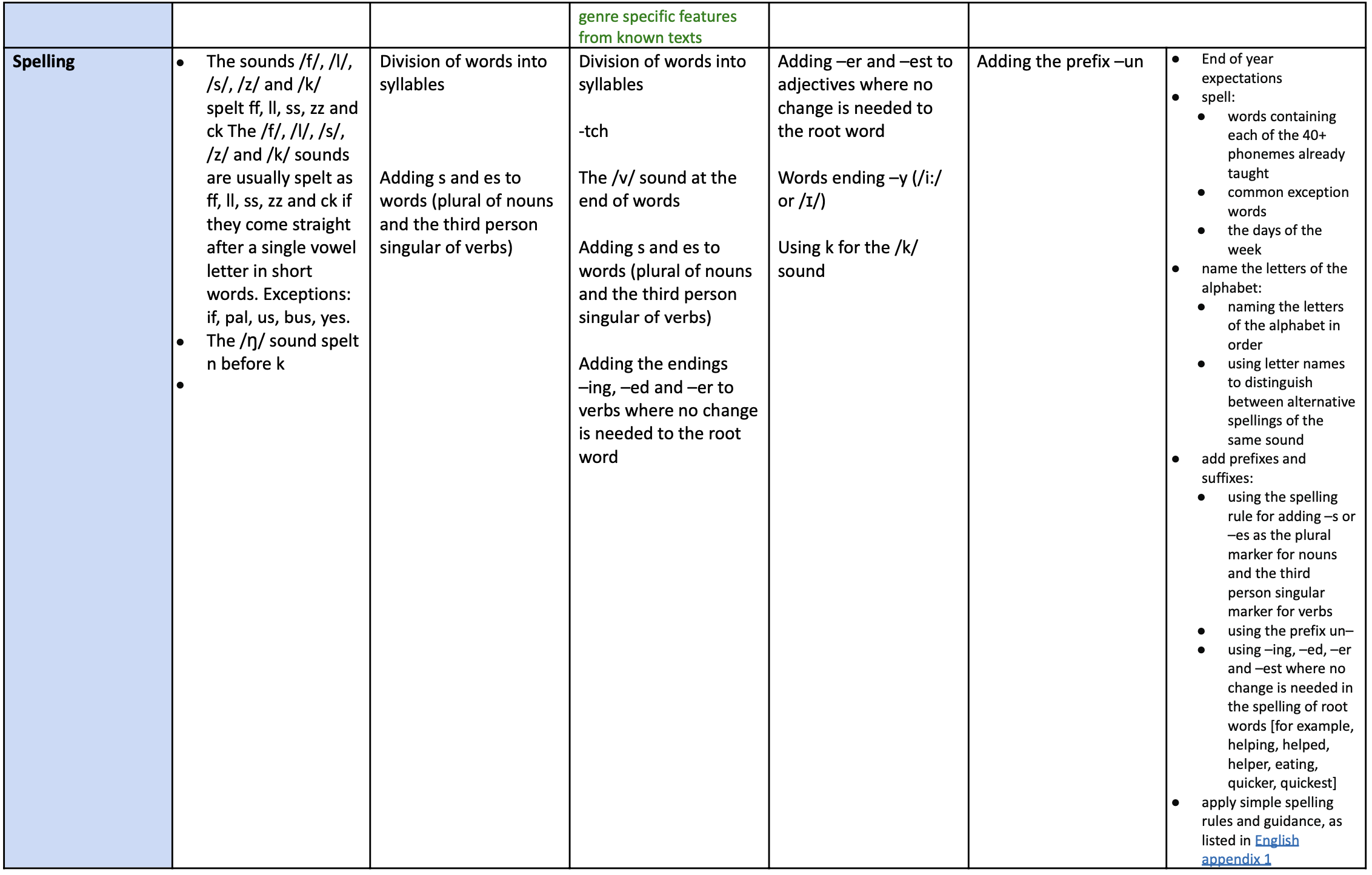

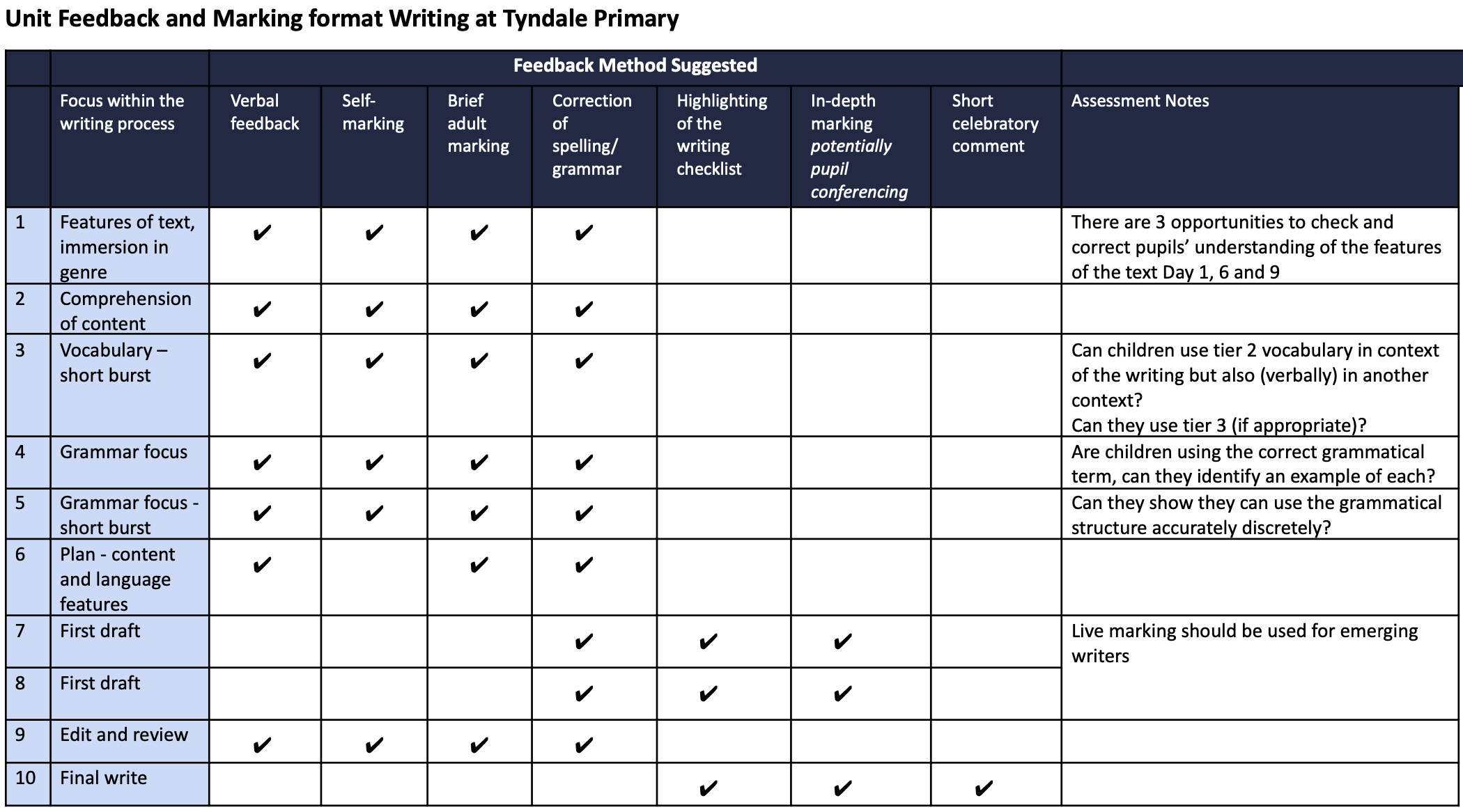
Year Two Overview
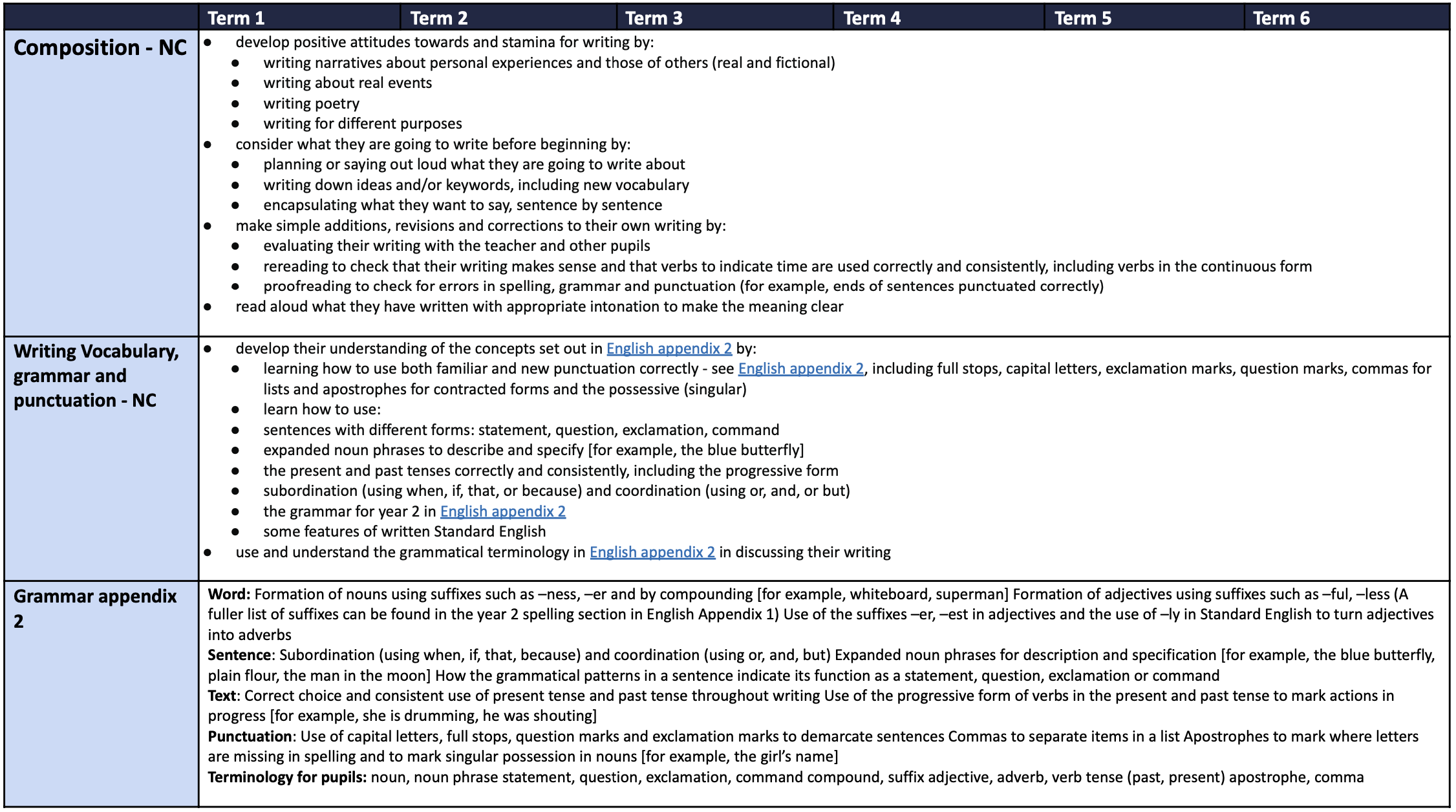
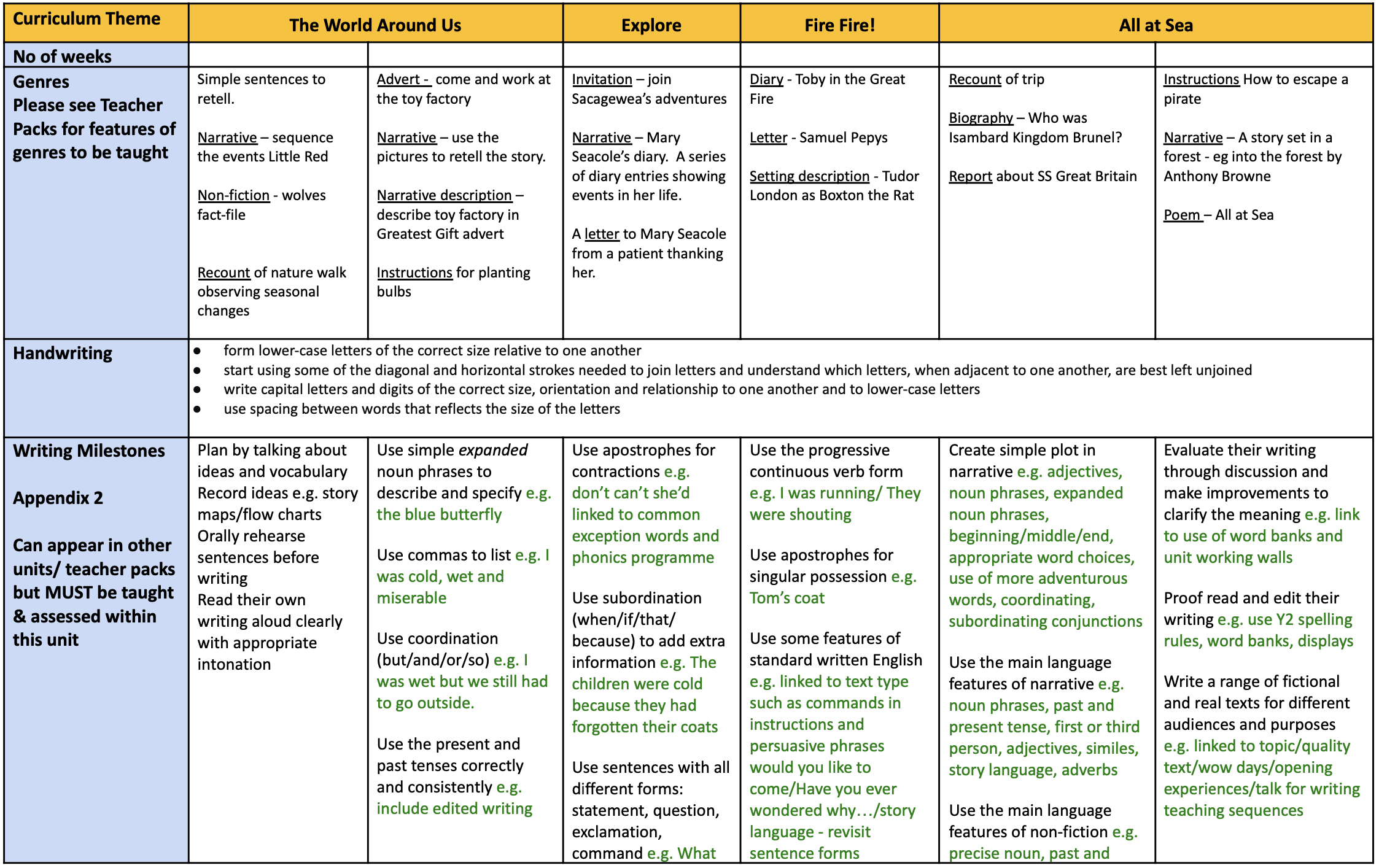
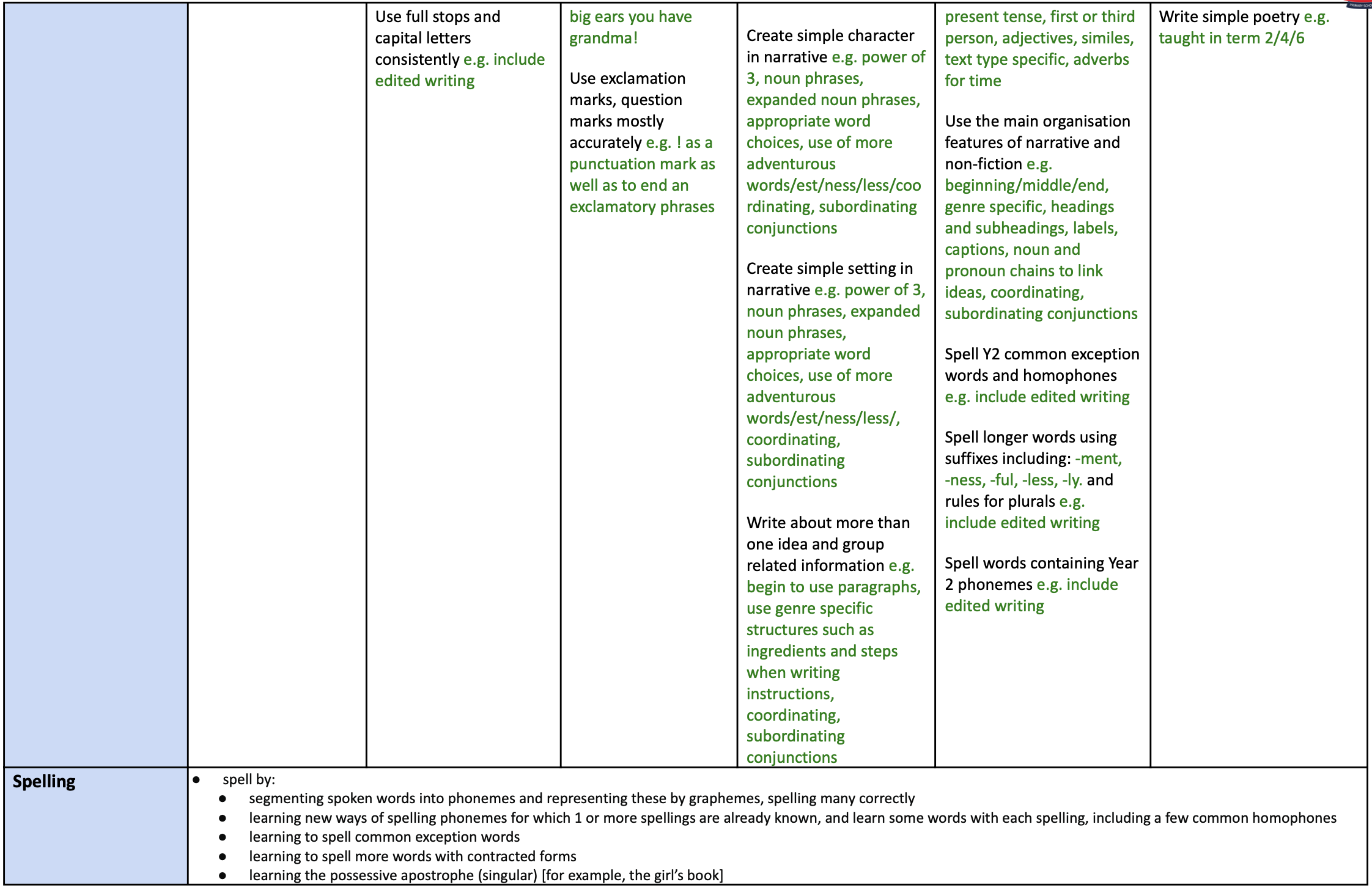
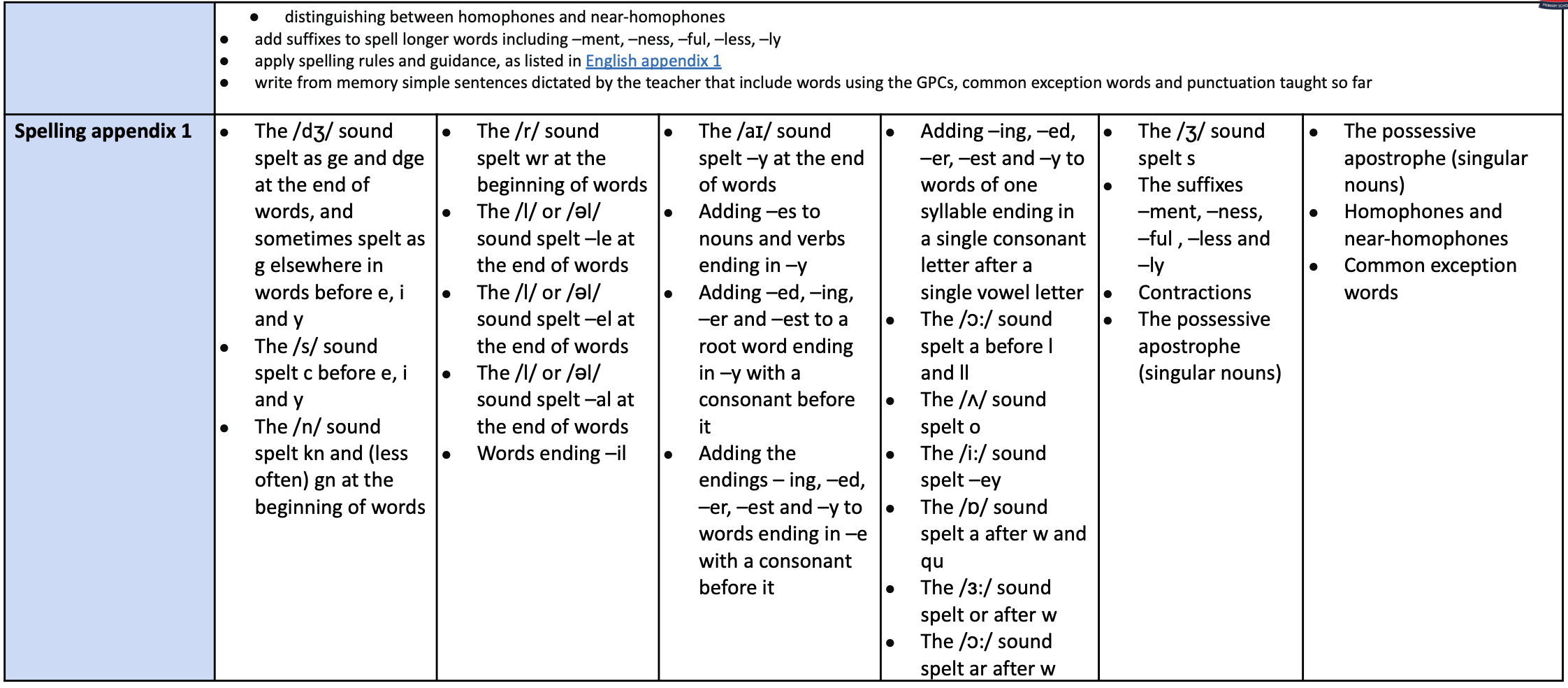

Year Three Overview
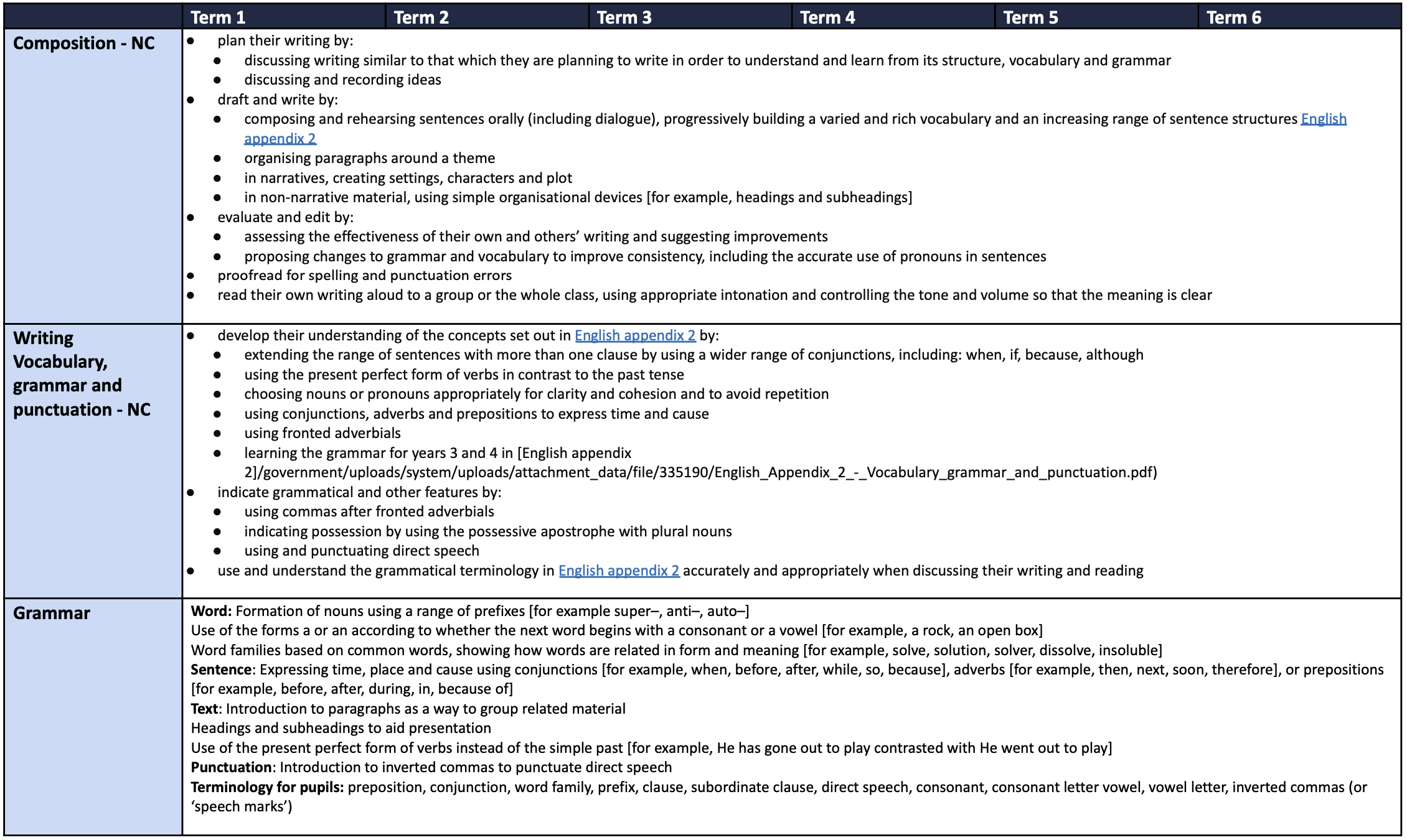
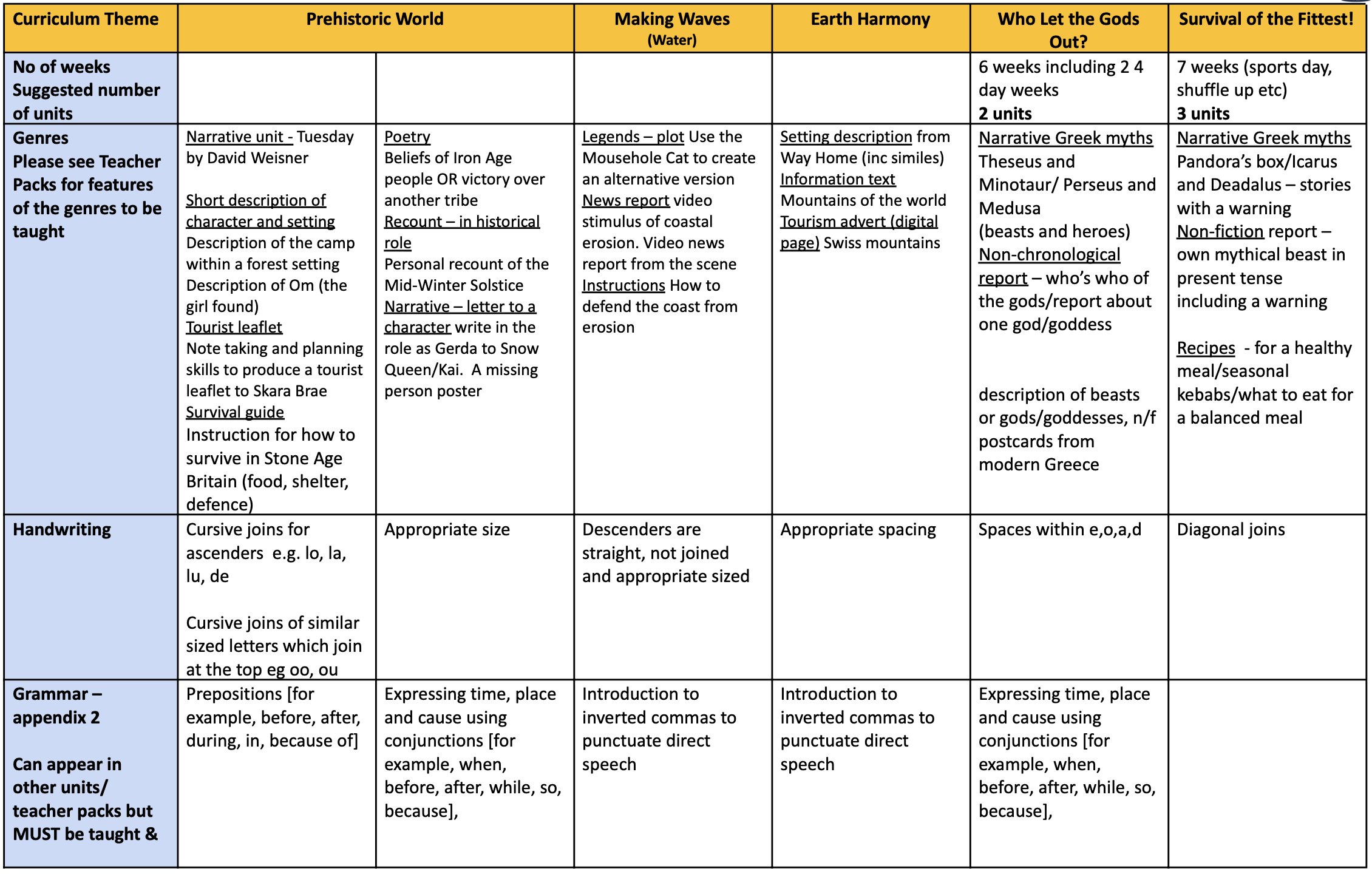
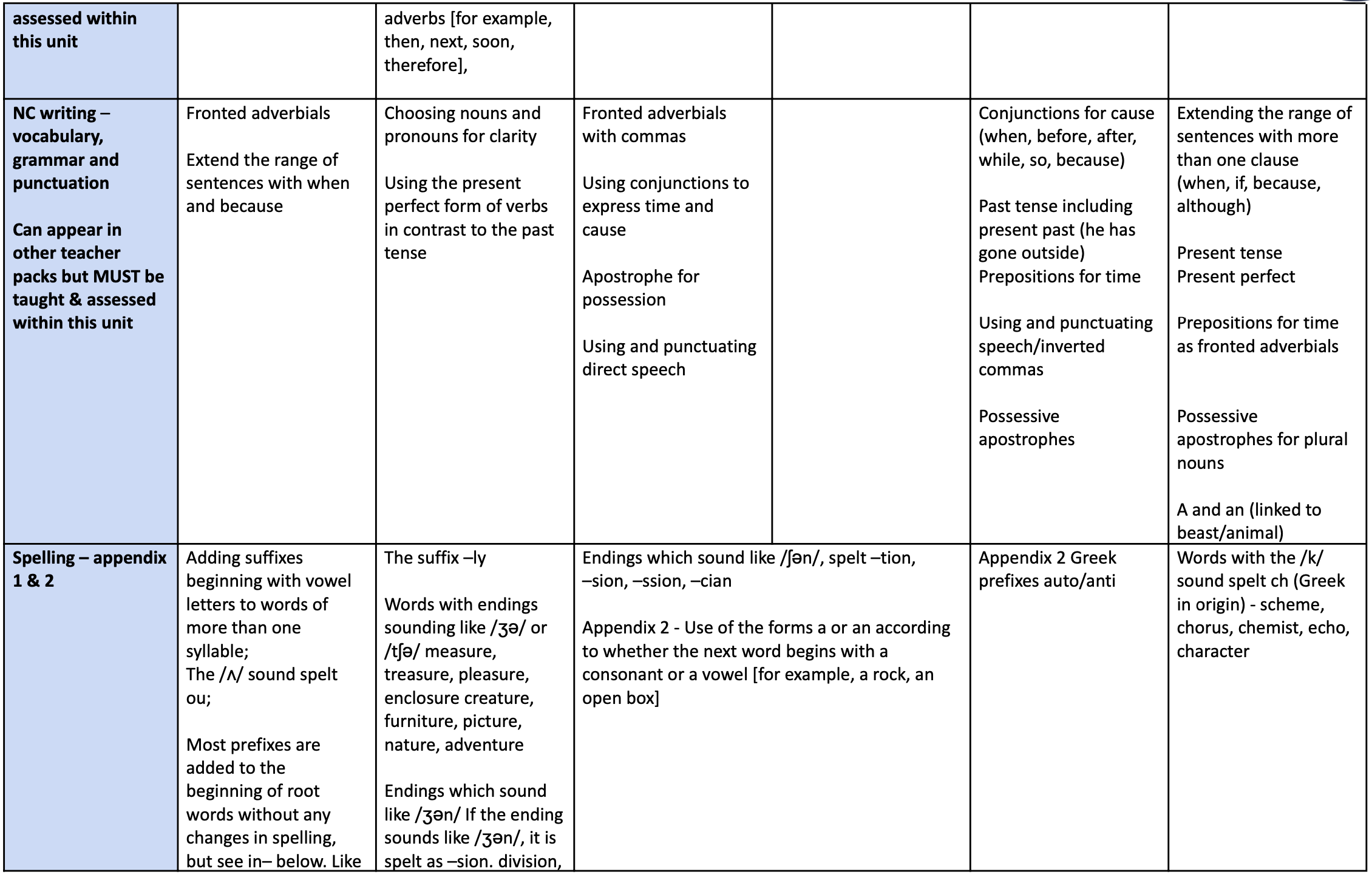
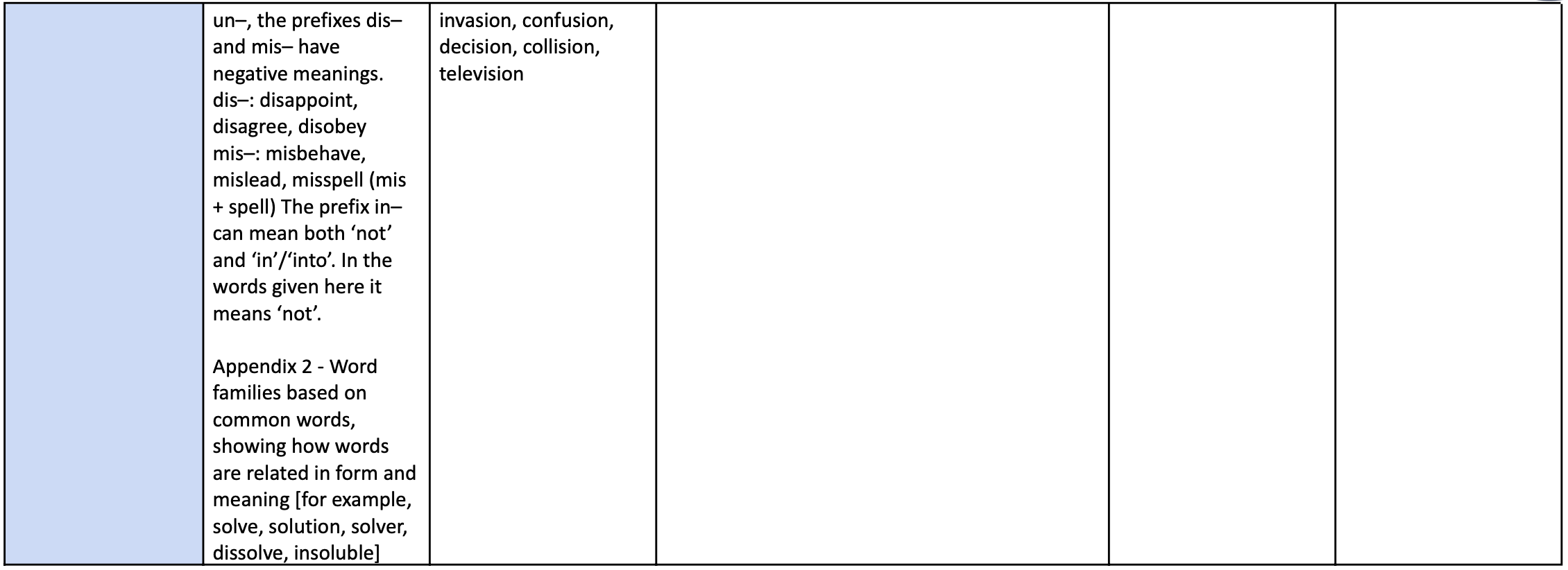
Year Four Overview
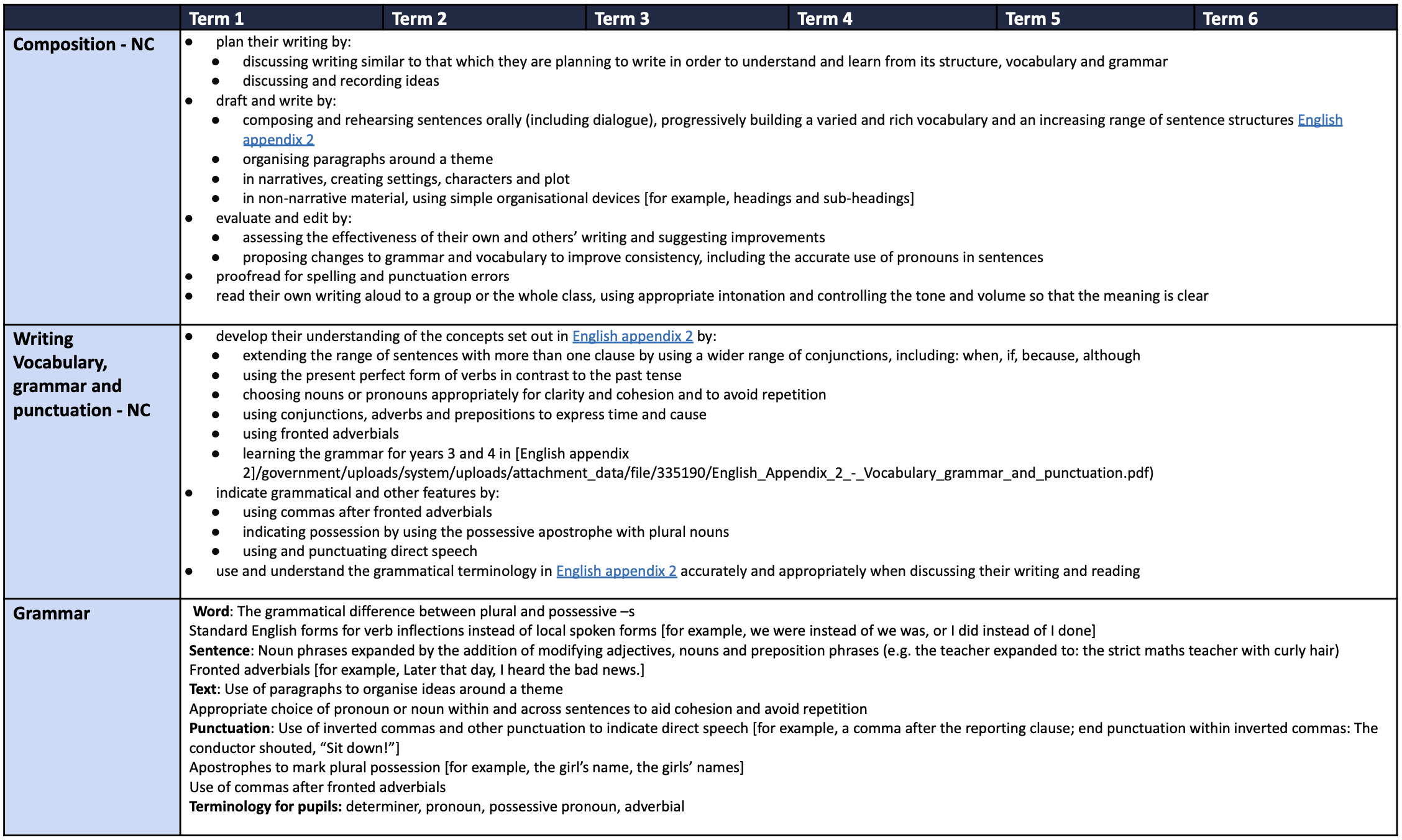
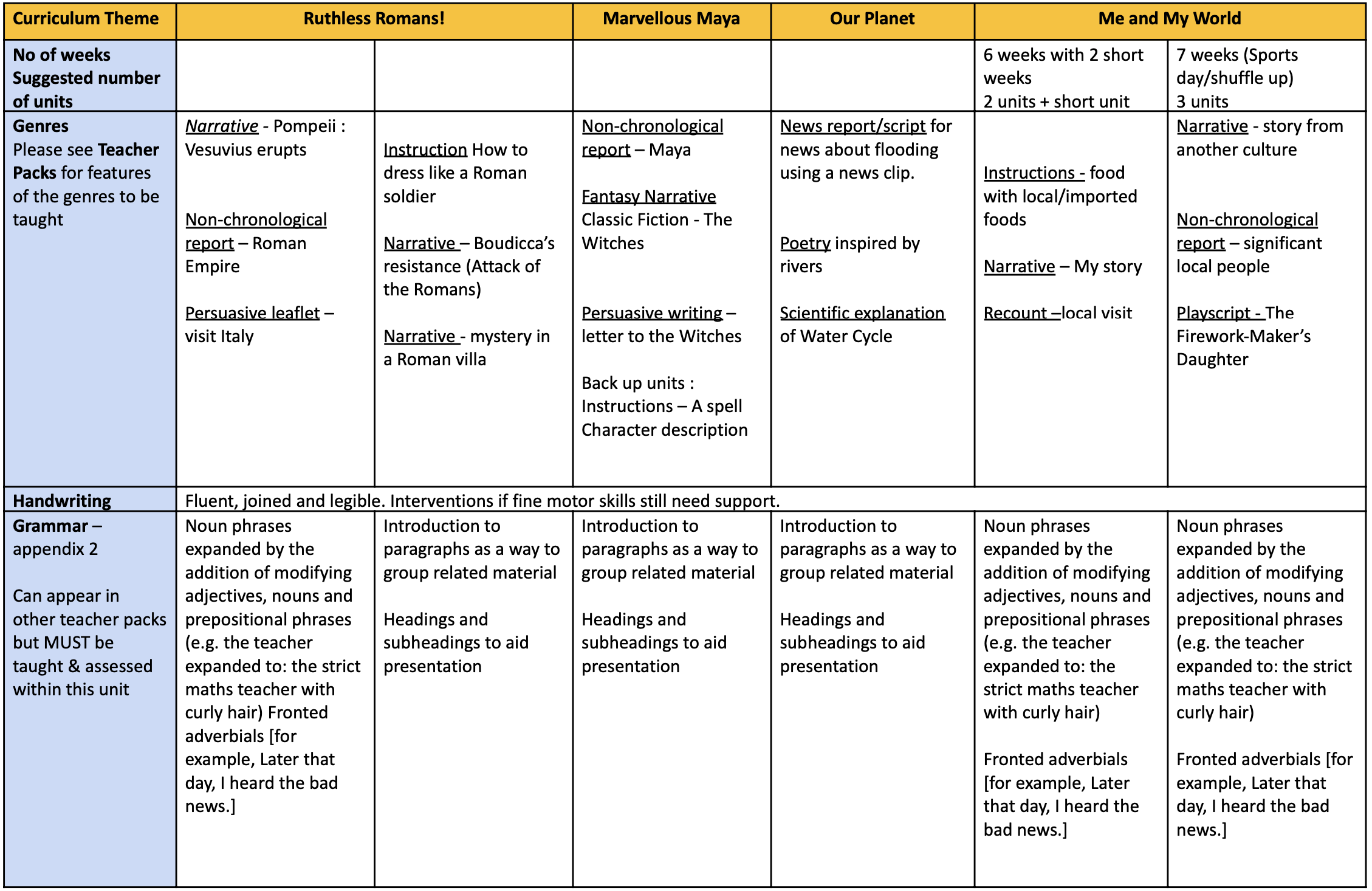
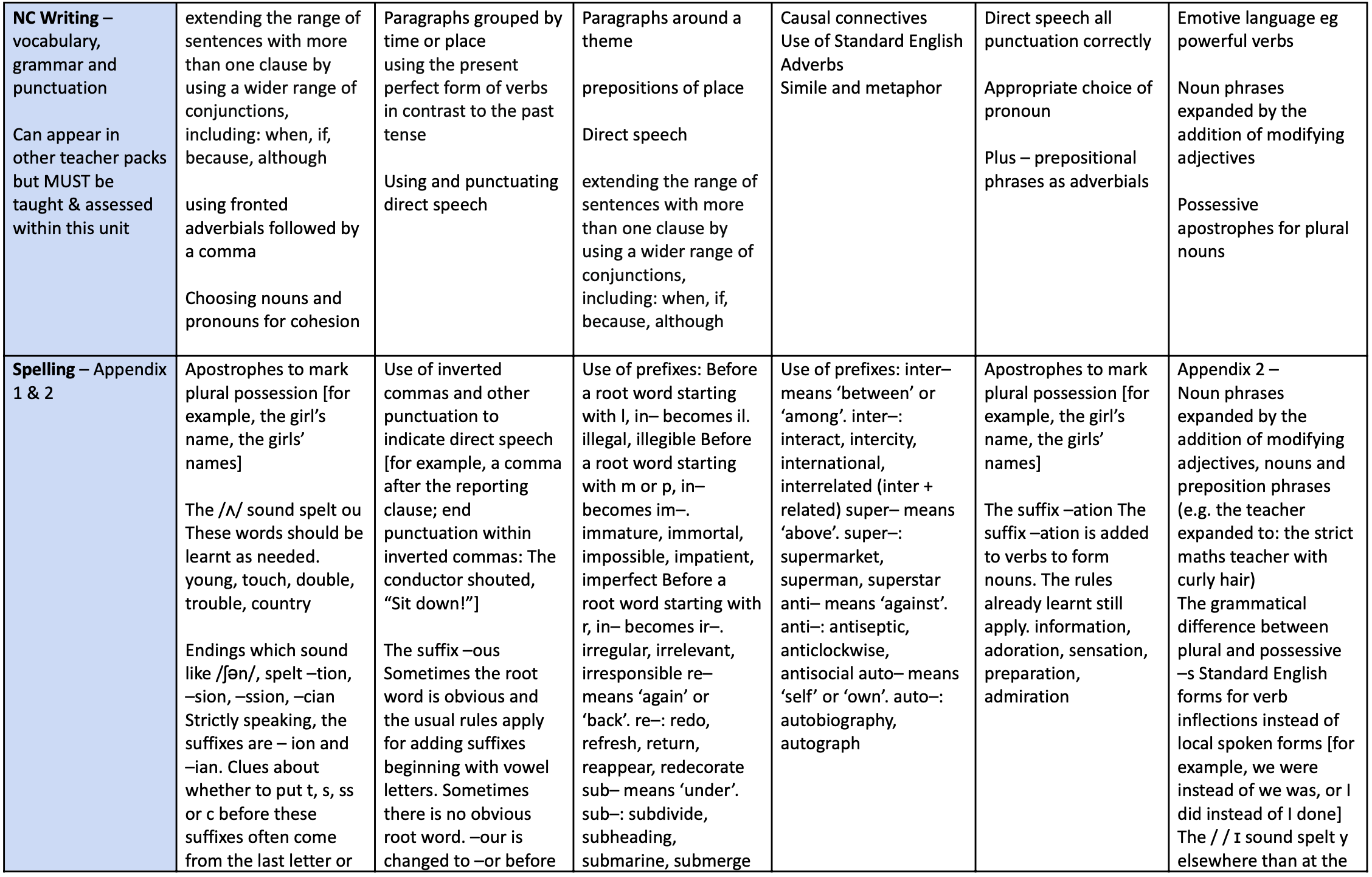
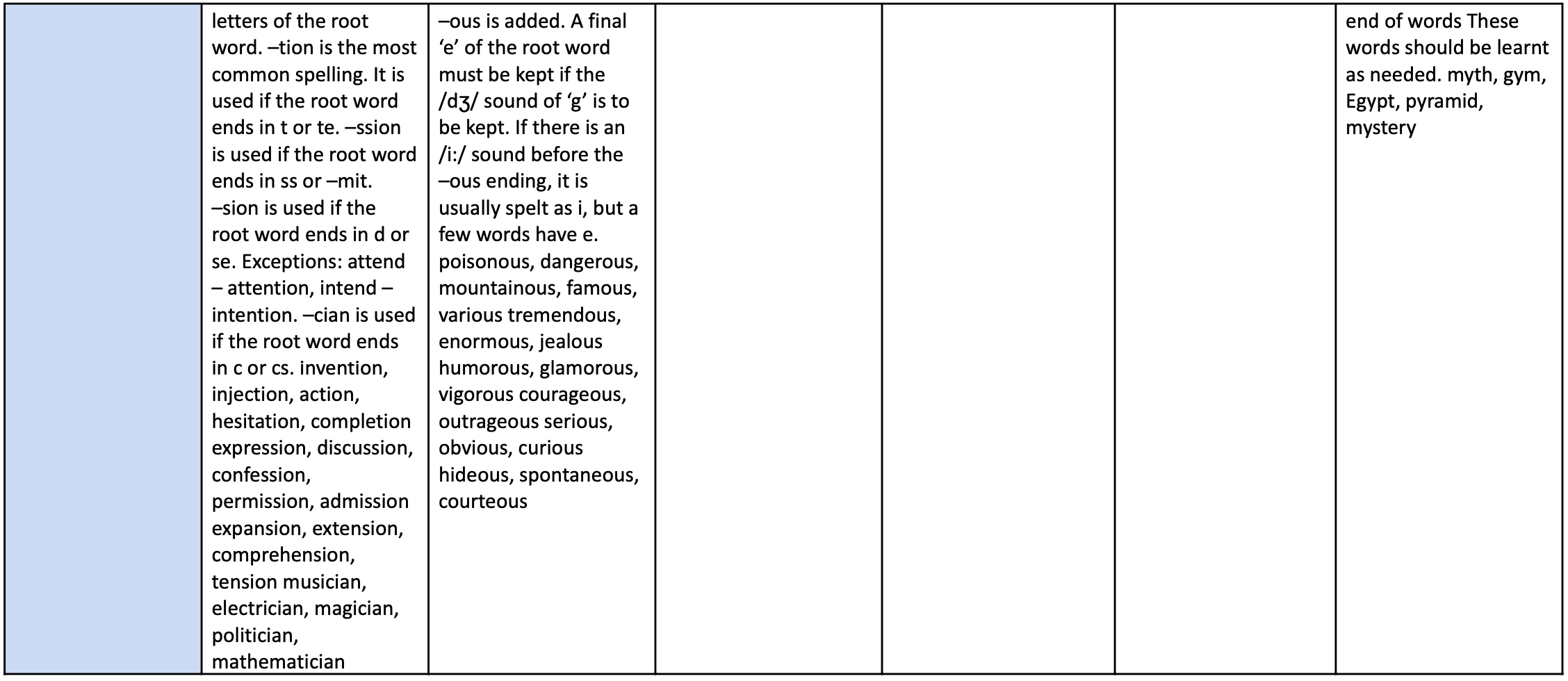

Year Five Overview
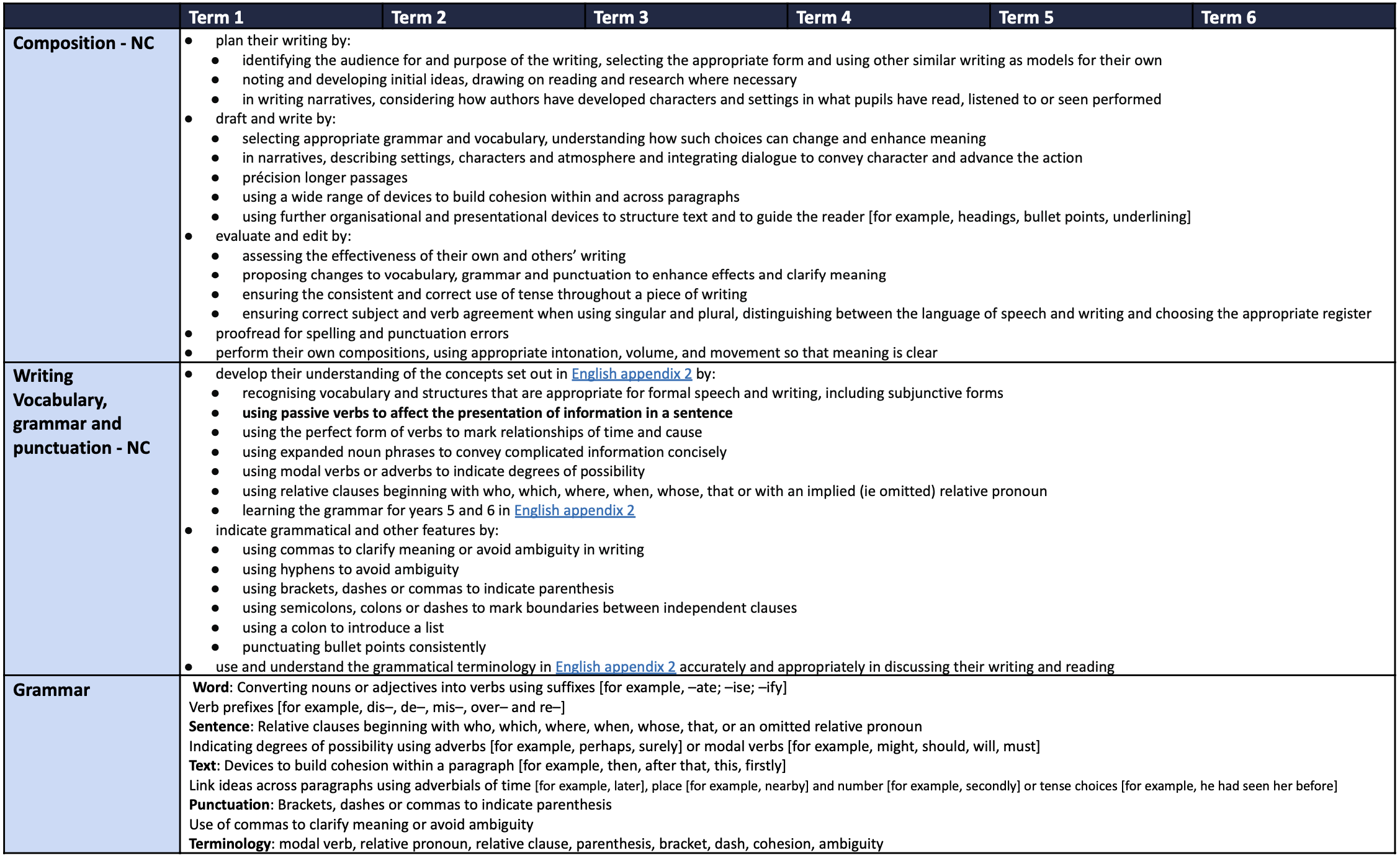
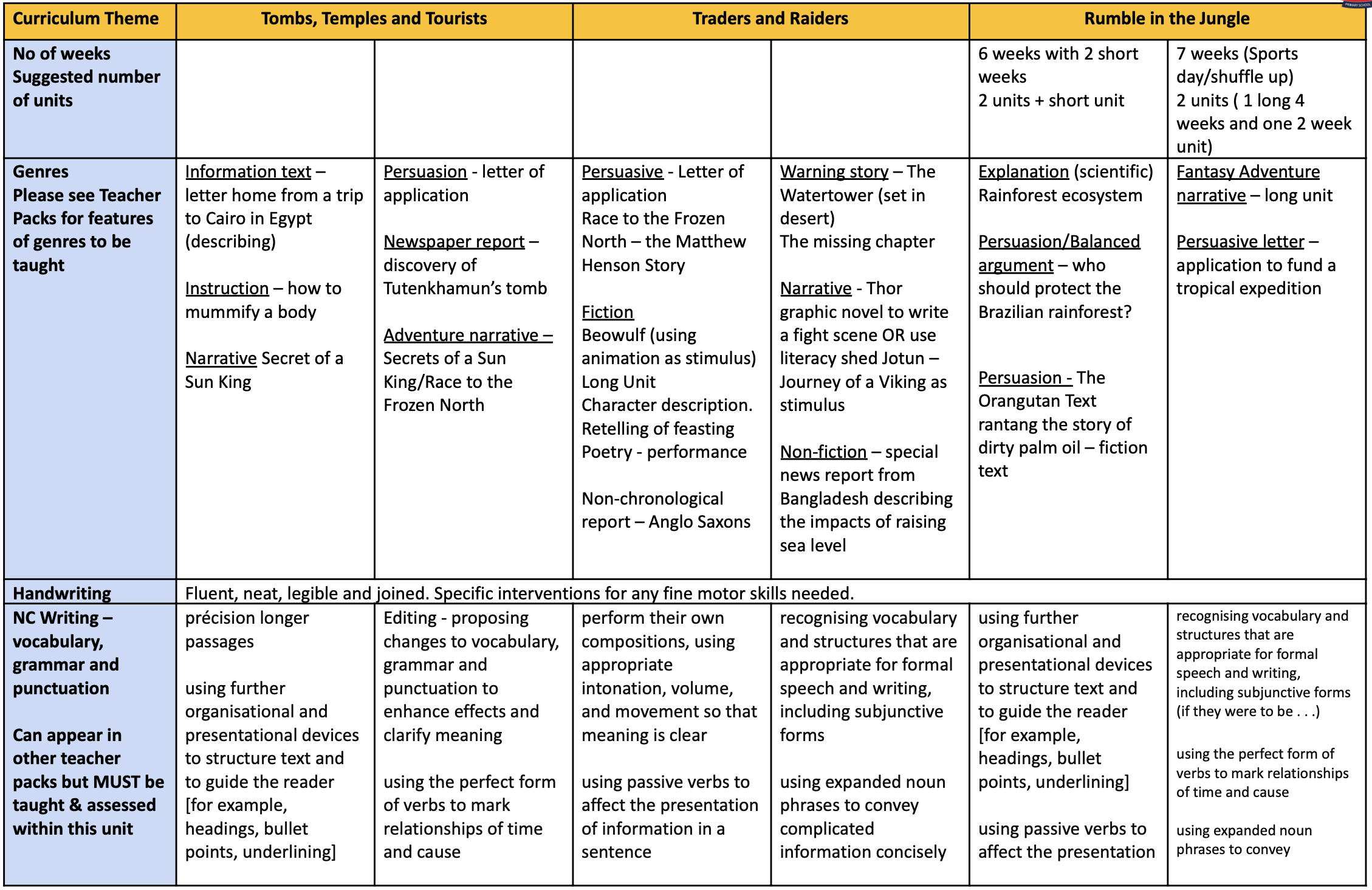
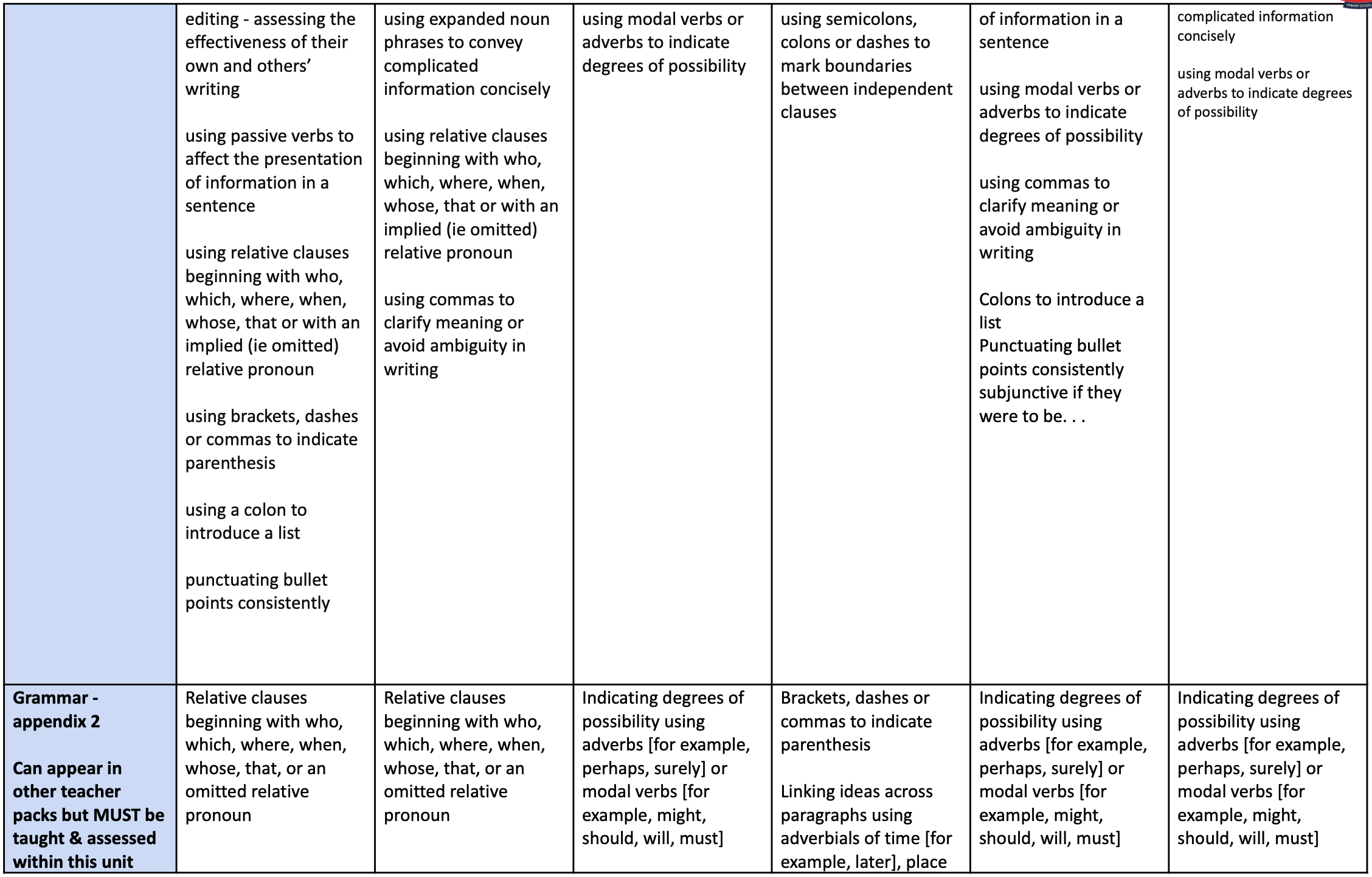
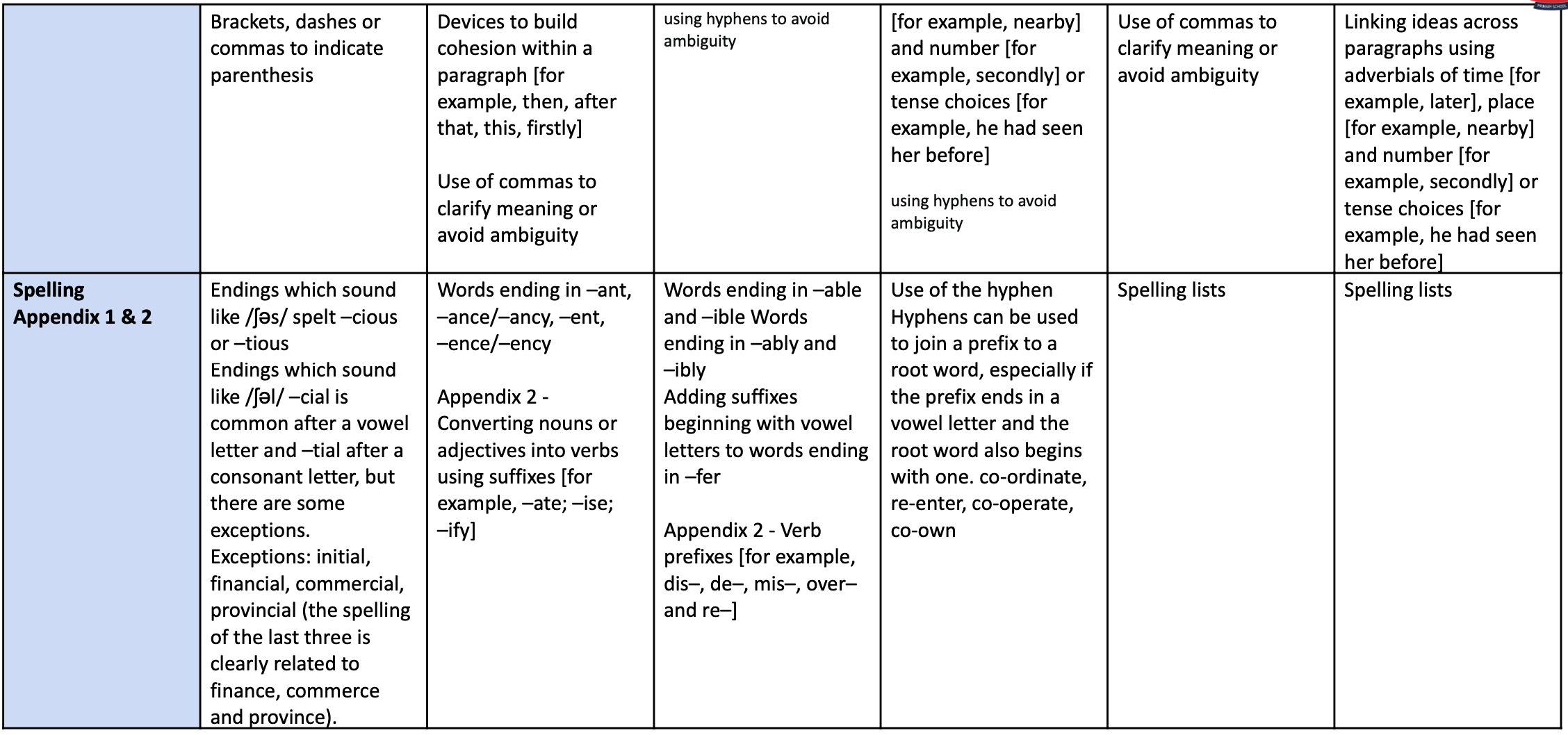

Year Six Overview
